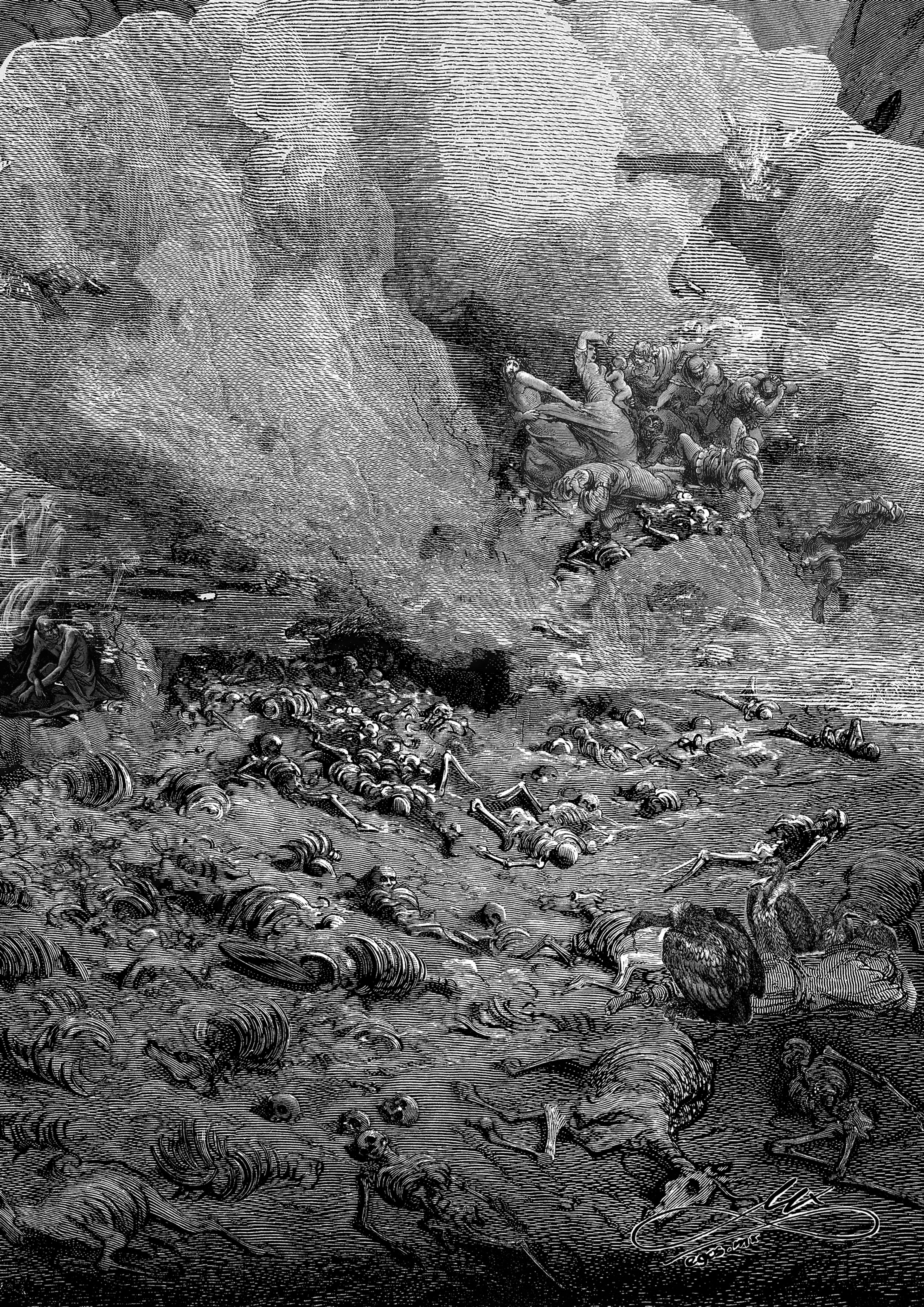The Chronicles
Verse 1 - The Awakening of the deities
In the beginning, there was only darkness. At least, so it would seem in the eyes of man. In reality, after an eternity of stillness, the Ether was stirring. It is said that an enormous bang resounded, like a blow to the largest gongs of the Guyins, the race of half-giants from the far west. But no living soul yet existed to hear it. A bright shimmer appeared in the heavens. A gleam that spread out over the earth like a silken blanket, basking it in a warm dawn glow. It was the morning of the awakening. Seven deities awoke. They opened their eyes one by one, without any memories of the past. Yet, they all knew their divine spirits belonged to the Ether. That the Ether had borne them and given them life. They all saw glimpses of the future; of the Land of Spirits. That’s how they knew they would harness the power of the Ether to form the earth, to fill it with all manner of living creatures, and to bestow these creatures with spirits of their own. But moreover, that the Ether was like an ocean that would someday devour them. And with them, eventually their creations as well, as these were inextricably tied to their lifeforce.
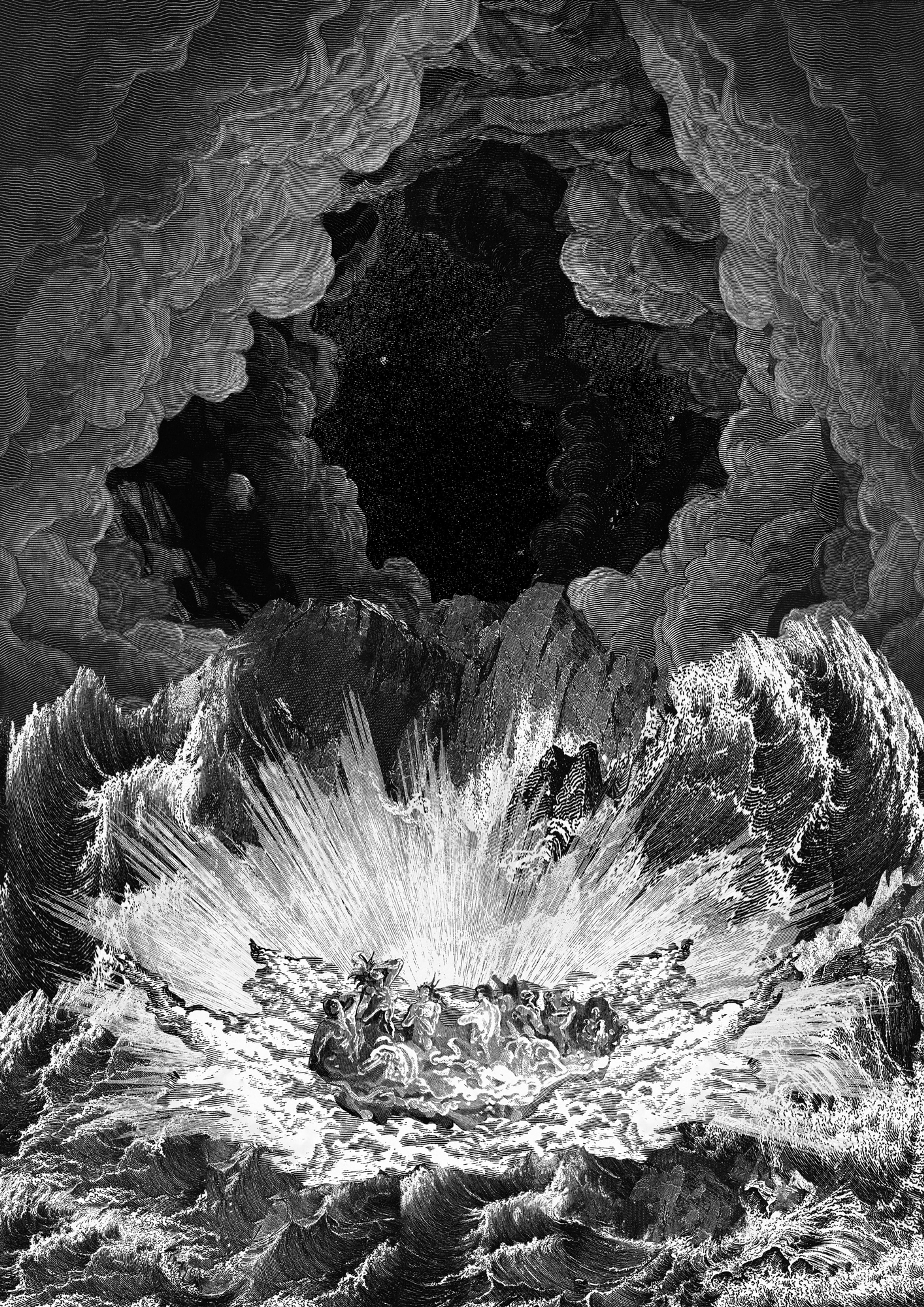
Verse 2 - Teriyas, God of Creation
Teriyas, God of Creation, was first to open his eyes. Bewondered, but immediately filled with greed, he pored over the barren plains of the earth. He would use the Ether to shape the lands into mighty mountains, valleys, oceans and rivers. He looked down upon the other deities, who were still aslumber. He would create a harsh but magnificent realm worthy of the Gods. But most of all, worthy of Teriyas, who had awoken first.
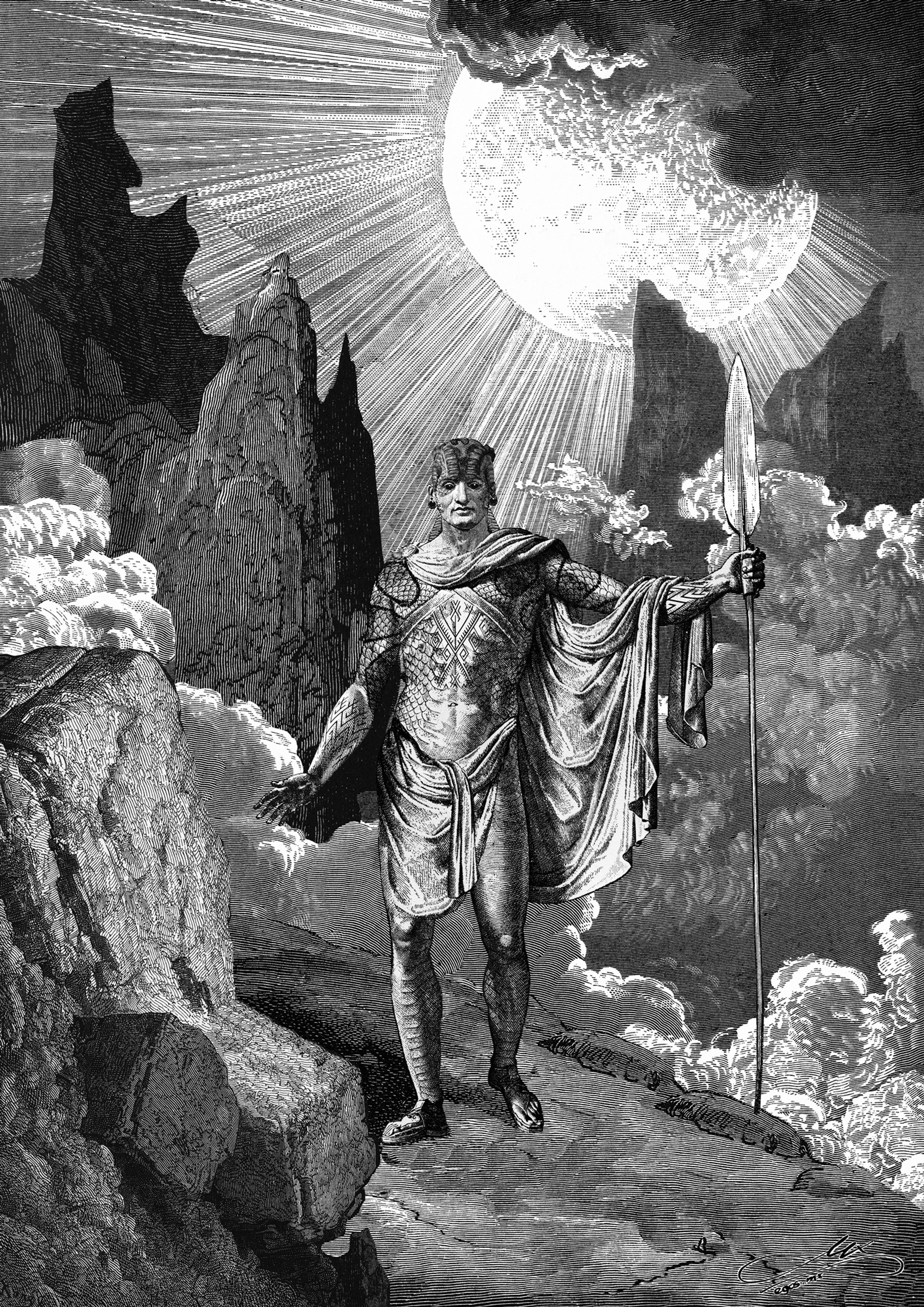
Verse 3 - Anata, Goddess of Nature
Then it was Anata, Goddess of Nature, who opened her eyes. She was much less content with the vast emptiness surrounding her. With the first words she uttered, she avowed to use the Ether to cover the lands with soil and algae and bring into existence vast grasslands, forests and coral reefs that would be home to all kinds of different creatures. Teriyas would be her ally in forming this new world, but, in the pits that were his eyes, she saw an interminable hunger that made her fear him.
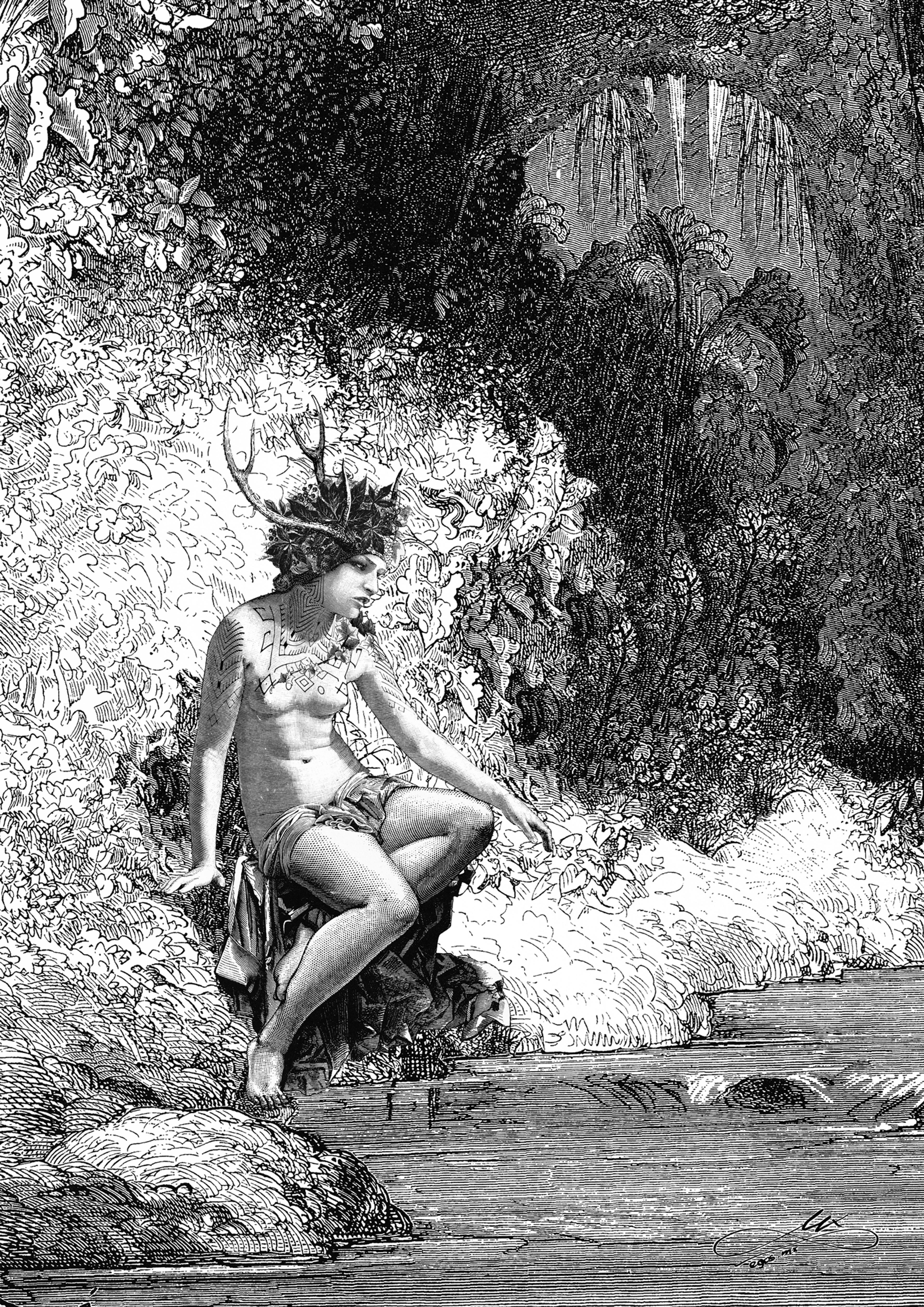
Verse 4 - Psikar, God of the Spirit
Then it was Psikar, God of the Spirit, who opened his eyes. He felt immense awe for the vision of Teriyas and Anata. He vowed that he would use the Ether to bespirit the lands and creatures they would create. All the while, he witnessed the greed and fear in their eyes and made a promise to himself. He would look deep inside himself, ensuring his motivations were pure and not driven by emotion or base urges and desires.
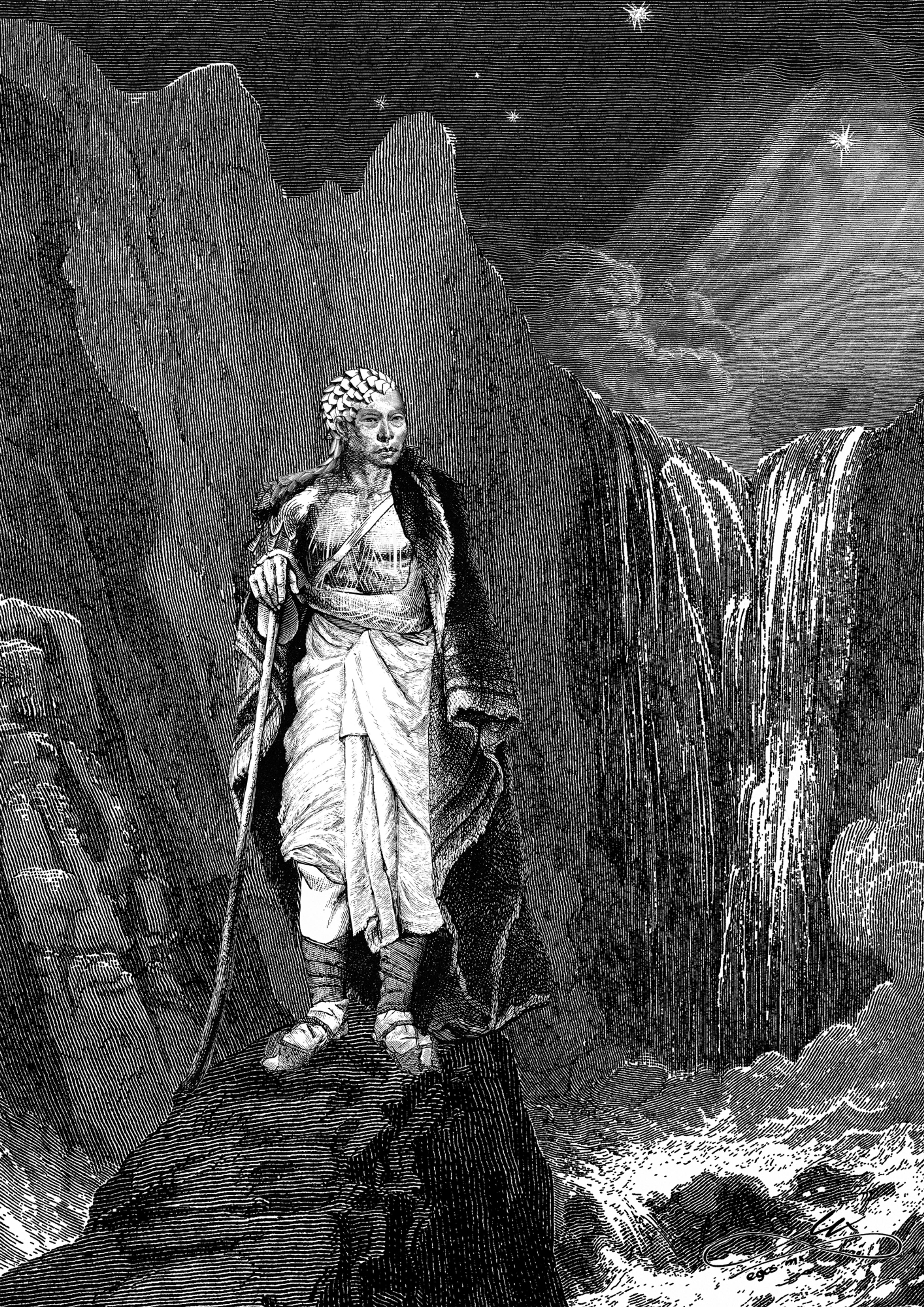
Verse 5 - Nadale, Goddess of Fire
Then it was Nadale, Goddess of Fire, who opened her eyes. She was not the least bit impressed by the intentions of the other three deities that had awoken before her. Why shape the lands? Why use the Ether to do anything, if it all would end again? Was there even a reason for their existence to begin with? She felt her anger swell inside her, for she knew she was cursed living her life seeking for purpose, seeking for meaning, when there was none to be found whatsoever.
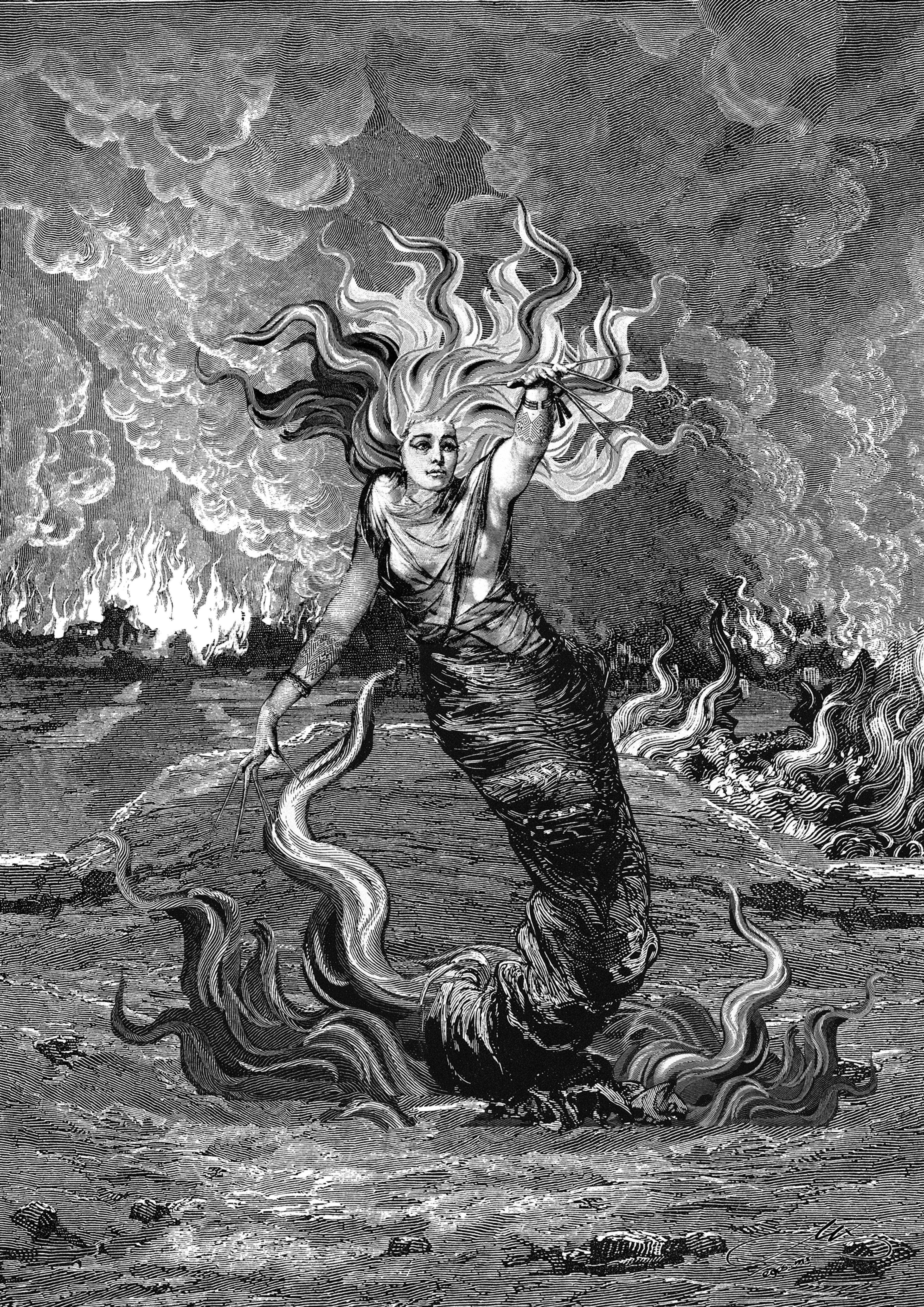
Verse 6 - Gidiyon, God of the Heavens
Then it was Gidiyon, God of the Heavens, who opened his eyes. At first he was afraid, but when he looked upon the other deities he found solace in the determination and power of Teriyas, who had awakened first. Unlike the other deities, his gaze soon wandered up towards the heavens. He would use the Ether to move the sky to establish the seasons that were needed to bring prosperity to the earth, in the way Teriyas saw fit.
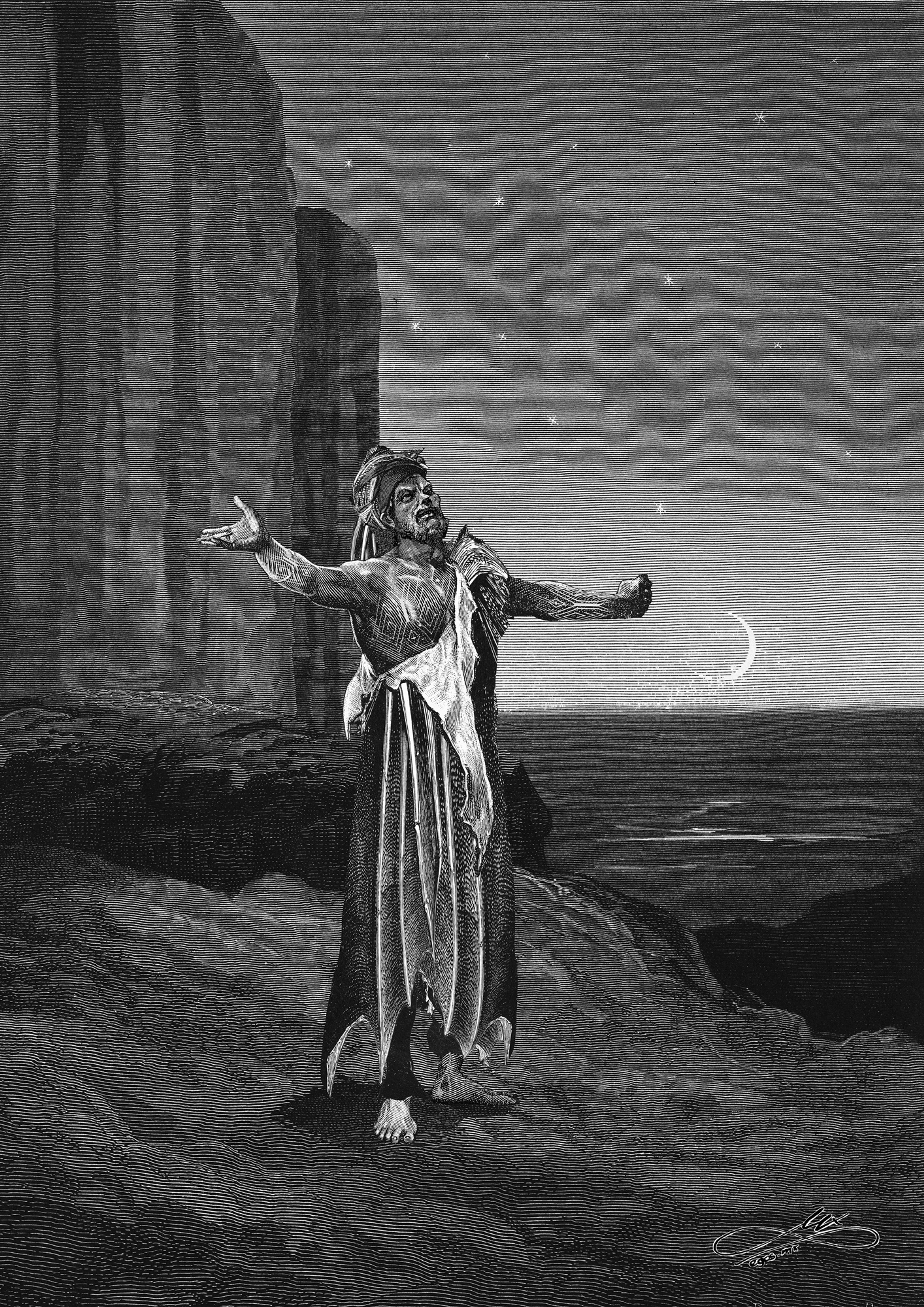
Verse 7 - Eviyra, Goddess of Beauty
Then it was Eviyra, Goddess of Beauty, who opened her eyes. She was the saddest of all deities, and her tears soon touched the barren earth. She swore that she would use the Ether to fill the empty world with beauty, and that she would advocate love between all the creatures inhabiting it. She felt how the other deities regarded her. Some with desire; most of all Teriyas. Others with envy.
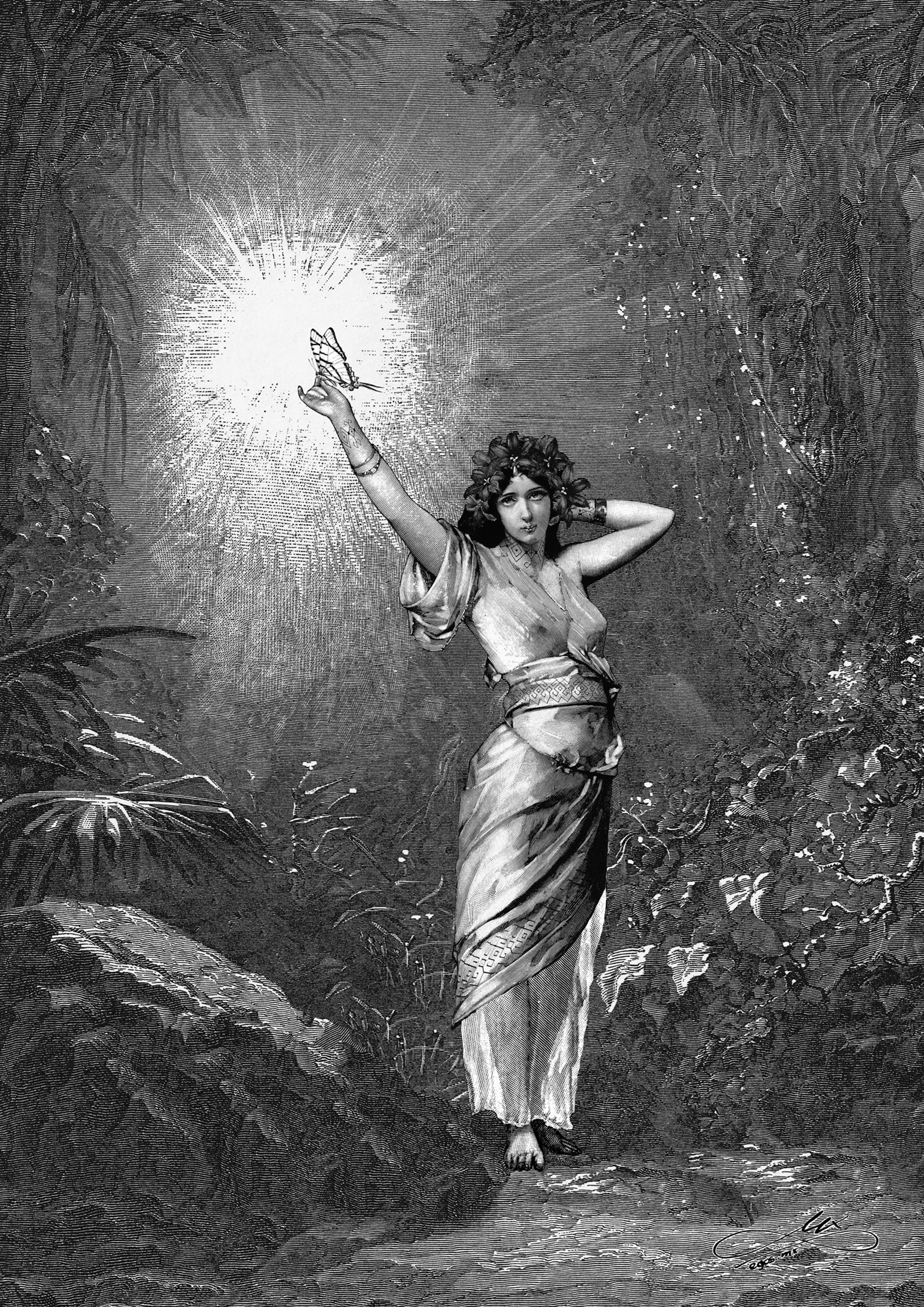
Verse 8 - Merg, God of War
Finally, Merg, God of War, opened his eyes. He felt a sense of overwhelming enviousness and resentment as he realized he was the last to awaken. All was yet decided, and he saw there was no place left for him amongst his kind in this world. He did not say a word. He knew he had no choice but to unleash chaos and disarray amongst the other deities. He would vigilantly study each of them with the hope of uncovering their weaknesses, so that, one day, he might exploit them.
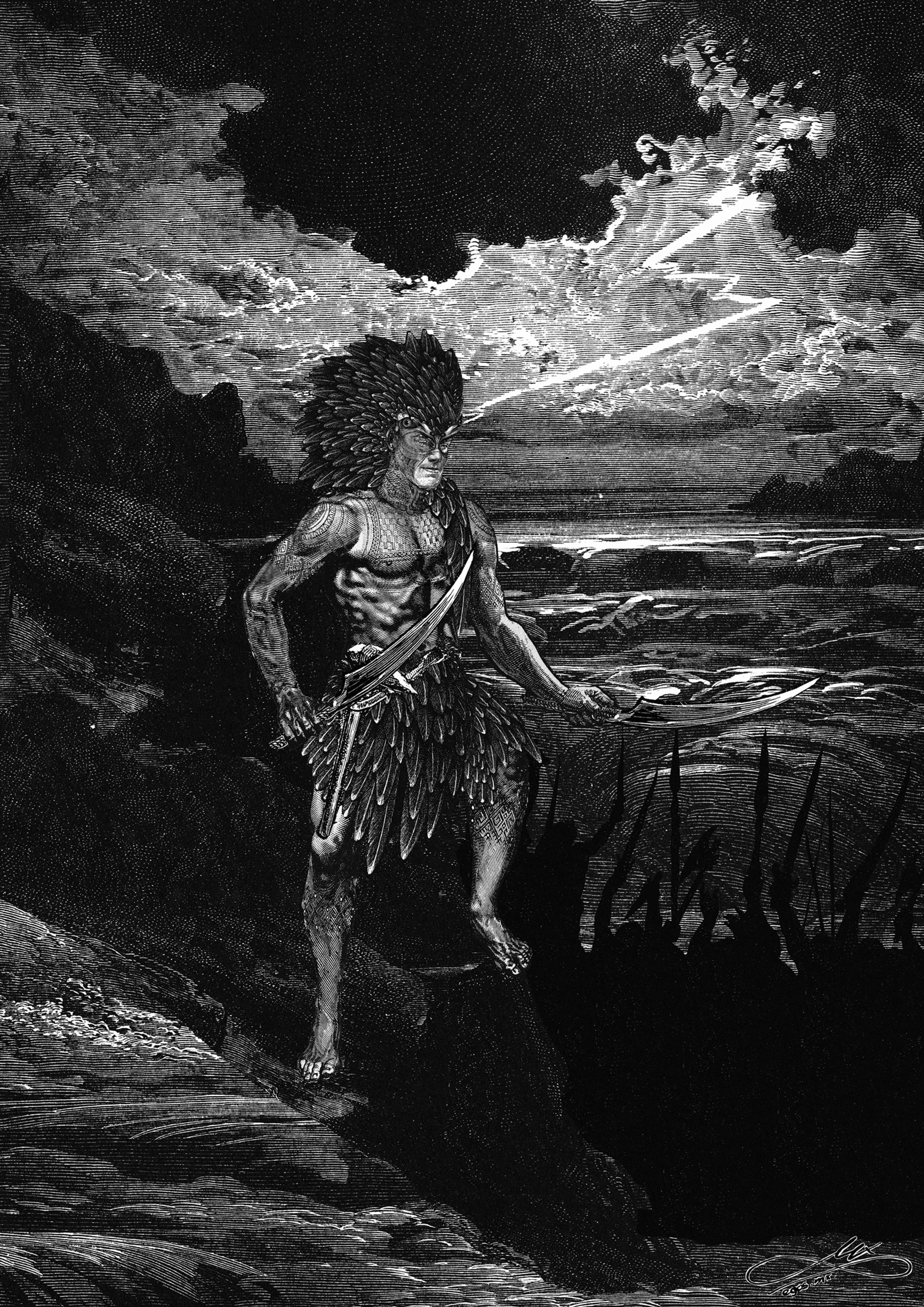
Verse 9 - The spirit world
The seven deities had awoken in their physical form. With bodies of flesh and blood. When they fought, out of anger or for sport, enough violence would cause wounds. And these wounds, if they were deep enough, would eventually form scars. However, they learned that their physical bodies were just an intuitive expression of their divine spirits. A stubborn illusion they nonetheless could challenge with enough practice and discipline. The deities learned how to take on spirit form, which allowed them to move unhindered through the Ether - the spirit world - and take possession of other bodies at will. In their spirit form however, violent clashes between the deities caused unpredictable disturbances in the Ether, and would come to harm them, permanently diminishing their powers, and thus the power of their incantations. A collision great enough would cause a wave of destruction with sufficient power to slay any deity in reach. This compelled the deities to uphold their peace as they built their world.
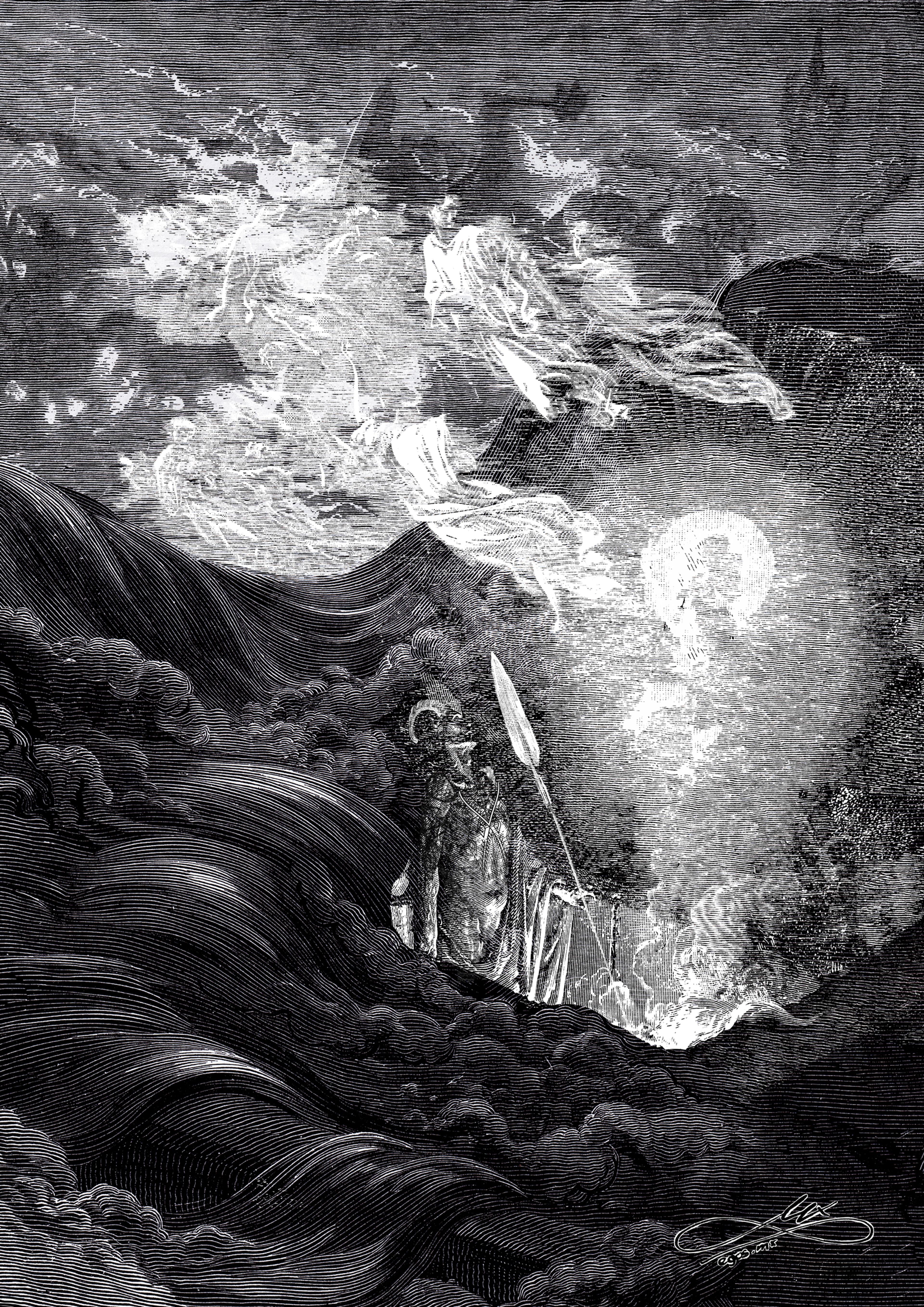
Verse 10 - The shaping of the earth
As promised, Teriyas, Anata and Psikar shaped the barren plains of the earth into a harsh but fertile realm, filled with great monuments of nature - vast imposing mountain ranges, colossal oceans and lakes, and abundant verdant grasslands and forests - not to mention the creatures that dwelled within them. Gidiyon set the sky into motion, creating the four seasons that changed the face of the earth four times a year and kept the circle of life moving. Thus came to be the Land of Spirits. Irritated by Teriyas' continuous arrogance and self-importance, Nadale and Merg kept mostly to themselves during the early formation of their realm. However, in secret, Merg had started to sabotage Teriyas’ work, hoping to undermine his leadership. Over time, his trickery resulted in many conflicts between Teriyas, Anata, Psikar and Gidiyon, to the amusement of Nadale, who made sure to belittle their false sense of purpose and meaning any chance she got. Eviyra, saddened by the wrangling between the deities, tried to reason with them, but to no avail.
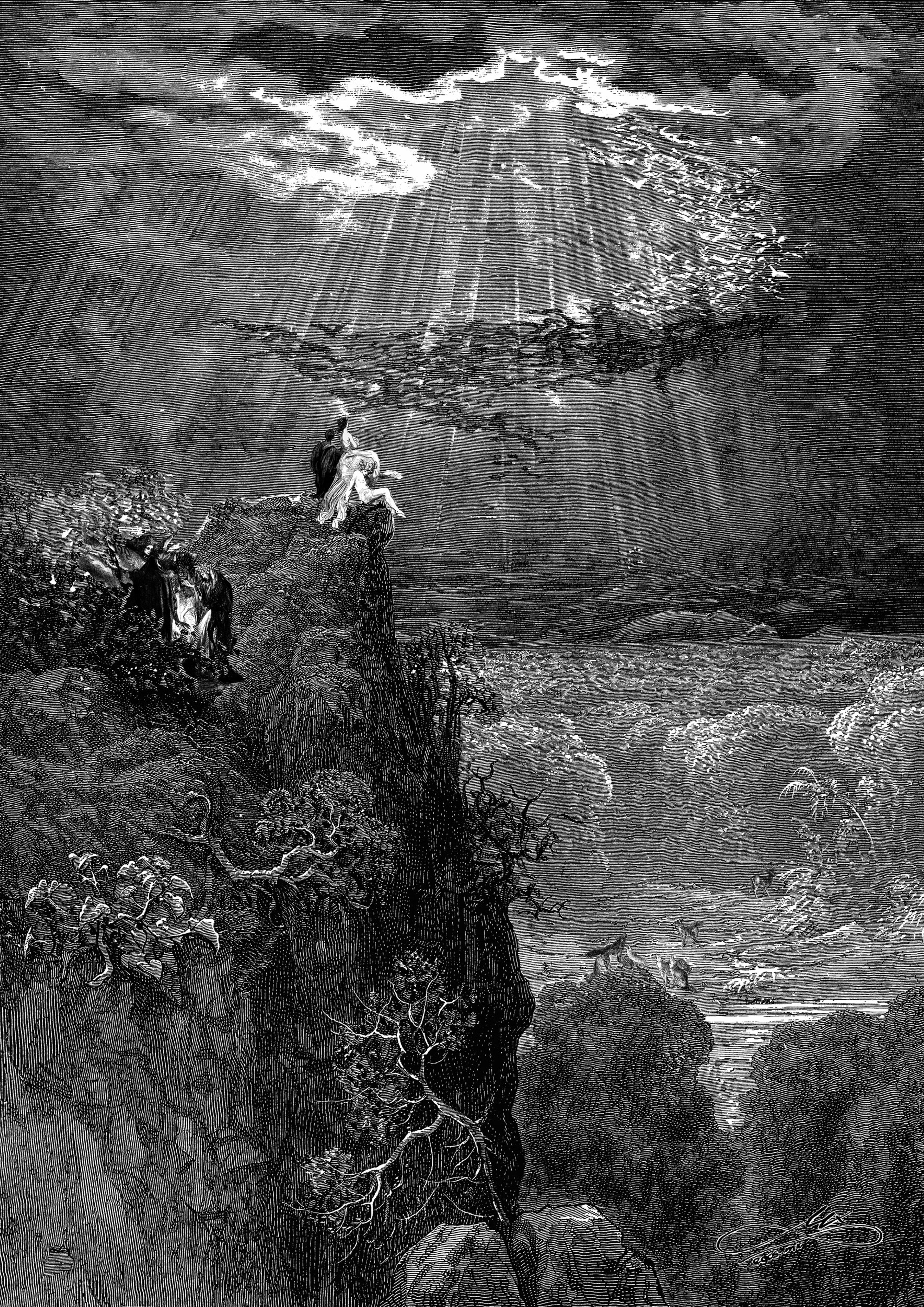
Verse 11 - The Nayil
Despite the tension amongst the deities, over time, a desire to procreate grew within them. When Teriyas declared his magnificent realm to be complete, they were not able to fight their urges anymore. It was as if they were under some kind of spell. When the Goddesses gave birth to their first divine children, they were repulsed by the creatures they had spawned. They were pale and hairless monstrosities whose black veins formed coiling webs clearly visible through their transparent skin. They were nothing like the deities themselves and possessed only a fraction of their divine power. Their screams were horrifying, and would drive the deities almost to the point of insanity. Yet, the deities were not able to suppress their urges, and, over the span of many centuries, these immortal creatures - the ‘Nayil’ as the deities called them - grew in numbers. Teriyas made them into a powerful army and put them to work engineering a colossal vault in the northern mountain range that was to become a sanctuary to the deities and a grand monument to their divinity.
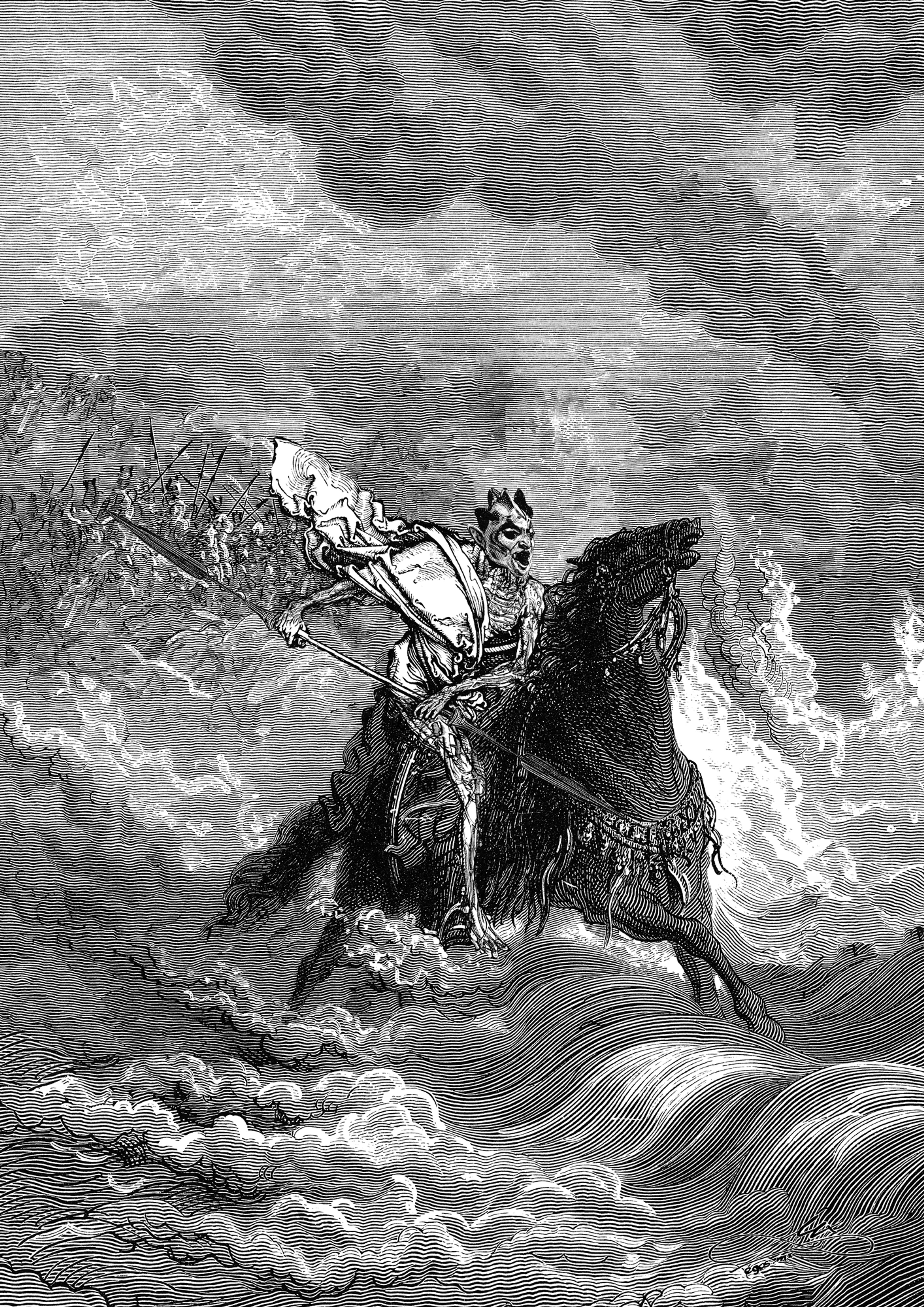
Verse 12 - The Giant Beasts
Teriyas was the first to voice his desire for more worthy children - exalted above the small and primitive creatures of the time but less disquieting than the Nayil. All deities shared this desire, even Merg and Nadale. Most pleased was Eviyra, who saw a chance to mend the broken bounds between the deities and welcome more beauty into their realm. The deities bundled their powers and from the Ether created the Giant Beasts, enormous creatures with large teeth, claws and beaks. The Giant Beasts learned to survive the harsh Land of Spirits and to adjust to the extreme and ever-changing seasons. Over the centuries, many races of Giant Beasts perished, while others grew into mighty hunters that fed on the flesh of others. This process was called the Unfolding, and resulted in a diverse hierarchy of creatures. At the pinnacle of the food chain were the Guyins, a race of half-giants that had formed a primitive civilization to the west of the Large Inner Sea. However, it was not their strength that caused them to prosper. They were more adroit than the other Giant Beasts, and managed to fight and eventually hunt them by wielding the power of fire.
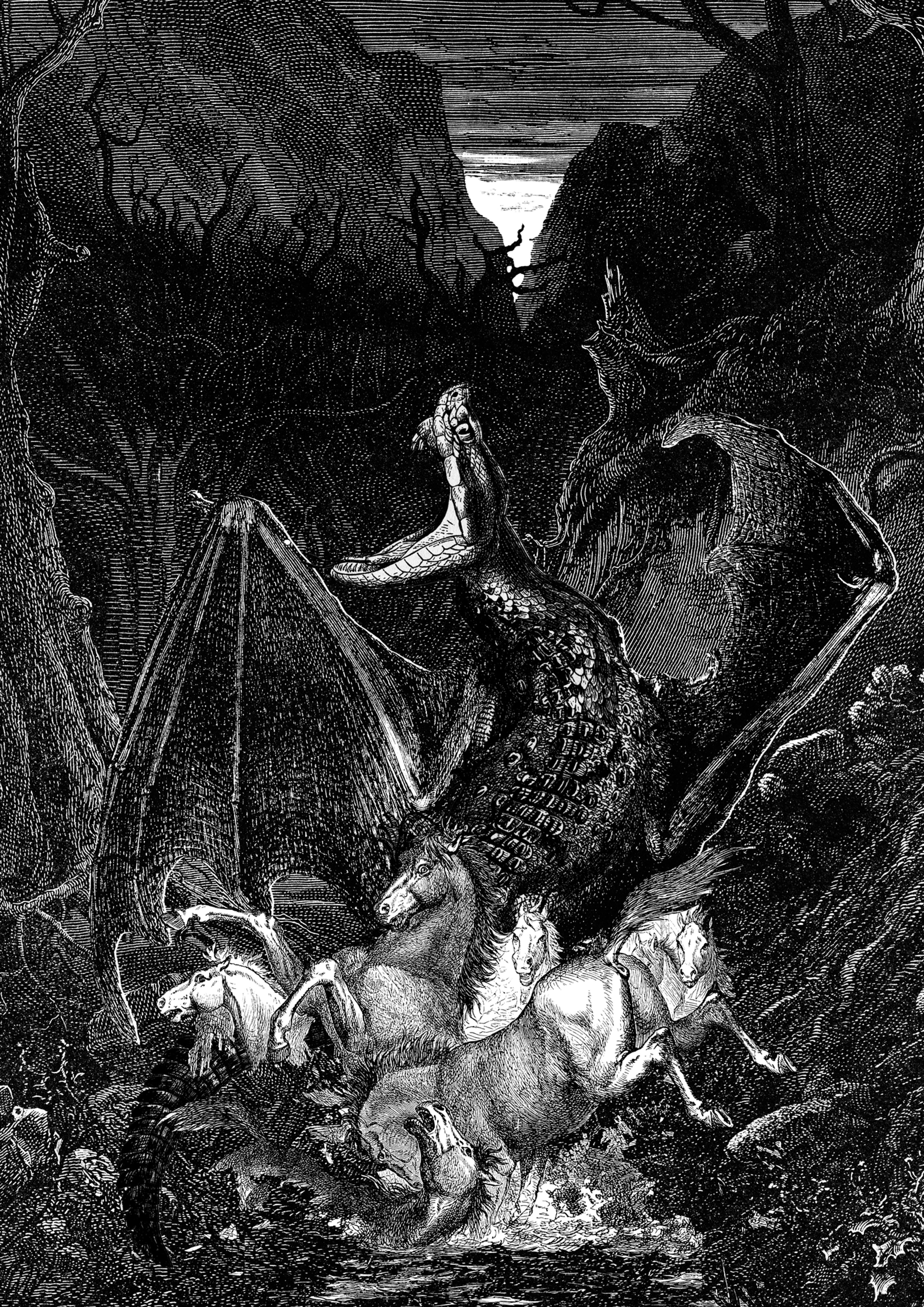
Verse 13 - The Ice Age
To the amusement of the other deities - with the exception of Eviyra - Merg made it his custom to fight and kill the largest and strongest of the Giant Beasts to develop his prowess as a warrior. Eventually, his strength and fighting skills grew to such great heights that the other deities began to respect and fear him; particularly Nadale, who had come to desire Merg more and more as time passed. As a result of this all, Teriyas realized that Merg was becoming a threat to him and could potentially challenge his leadership. He started to mock Merg for his fondness of the Giant Beasts, and accused him of creating offspring amongst them. Teriyas declared the Giant Beasts a failure not long after, and tried to convince the other deities to focus on creating a civilization of creatures modeled after the Gods themselves. A race worthy to rule the Land of Spirits and to replace the Giant Beasts. Afraid to stand between Merg and Teriyas and put themselves in harm's way, Anata, Psikar and Eviyra refrained from choosing sides. Gidiyon stood by Teriyas as always, and Nadale openly shared Merg’s rage. Furious because of the disrespect shown by the other deities, Teriyas and Gidiyon set in motion an irreversible ice age that eventually led to the extinction of the Giant Beasts. The Guyins managed to survive owing to their mastery of fire, along with many of the older more primitive creatures that were small enough to find shelter from the cold and survive on little nourishment. For his betrayal, Merg vowed to one day take revenge on Teriyas.
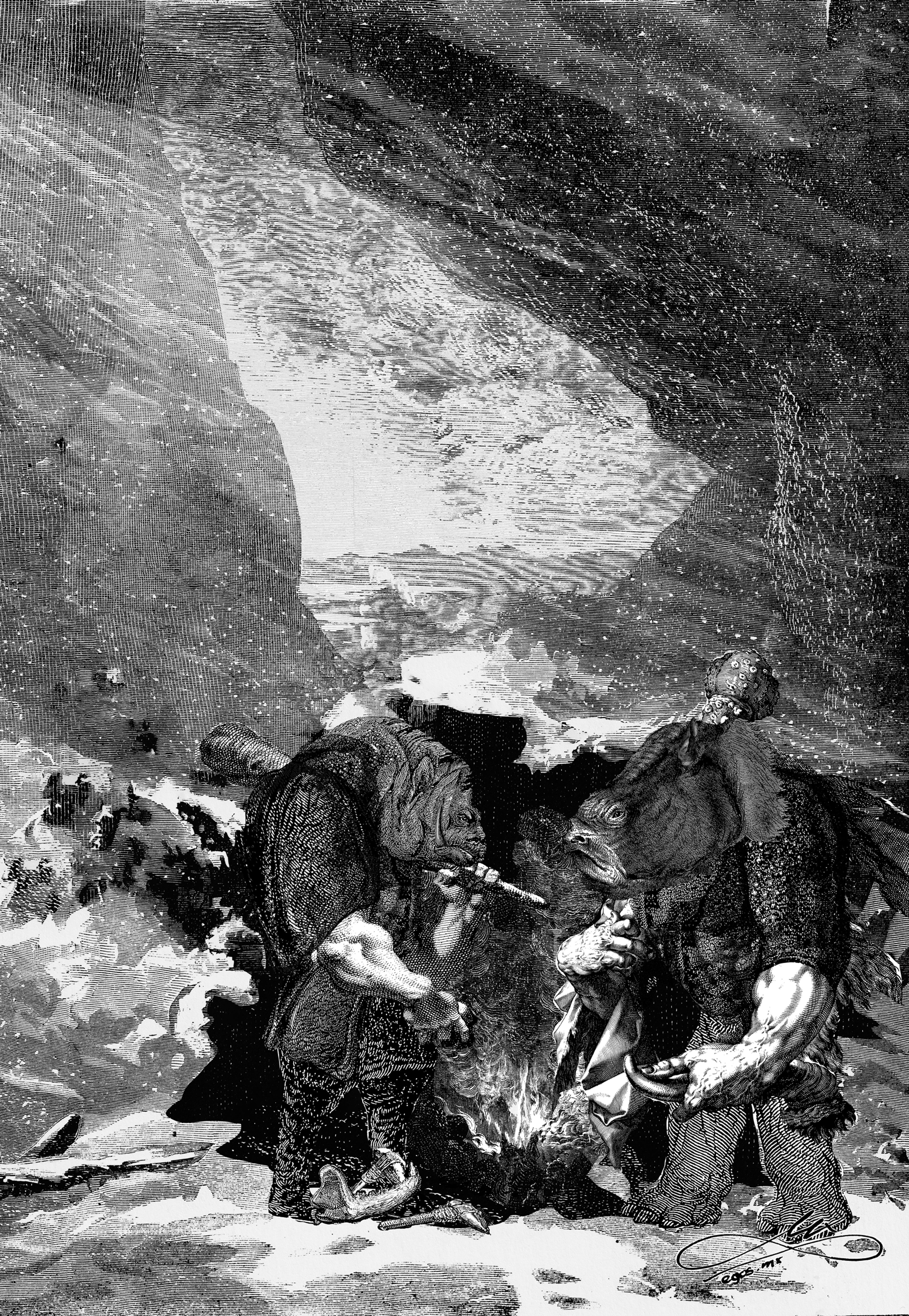
Verse 14 - The creation of the human races
The continuing animosity between Teriyas and Merg disturbed the delicate equilibrium in place between the seven deities. Nonetheless, Teriyas followed through on his plans to create a race worthy to rule the Land of Spirits. Anno 0, on the plains of Eyonan, Teriyas constructed two human races - the Mano and the Inya - both of whom were conceived in the image of the Gods, and which were initially perfect in his eyes. And his creation was magnificent. The deities were delighted and praised Teriyas for his work; but not Nadale and Merg. Merg proclaimed nothing and let Teriyas enjoy the fruits of this victory over him. He just watched Teriyas growing more and more infatuated with his glorious creation. In secret, meanwhile, he now saw a chance to hurt Teriyas in the way that Teriyas had hurt him beforehand. With the relentless Nadale at his side as his lover now, he would spread discord amongst the humans, causing them to hate and fear each other, before ultimately destroying themselves. He would make sure Teriyas’ faultless creation would fail miserably in the end, and make the flaws and misguidance of its creator visible for all to see.
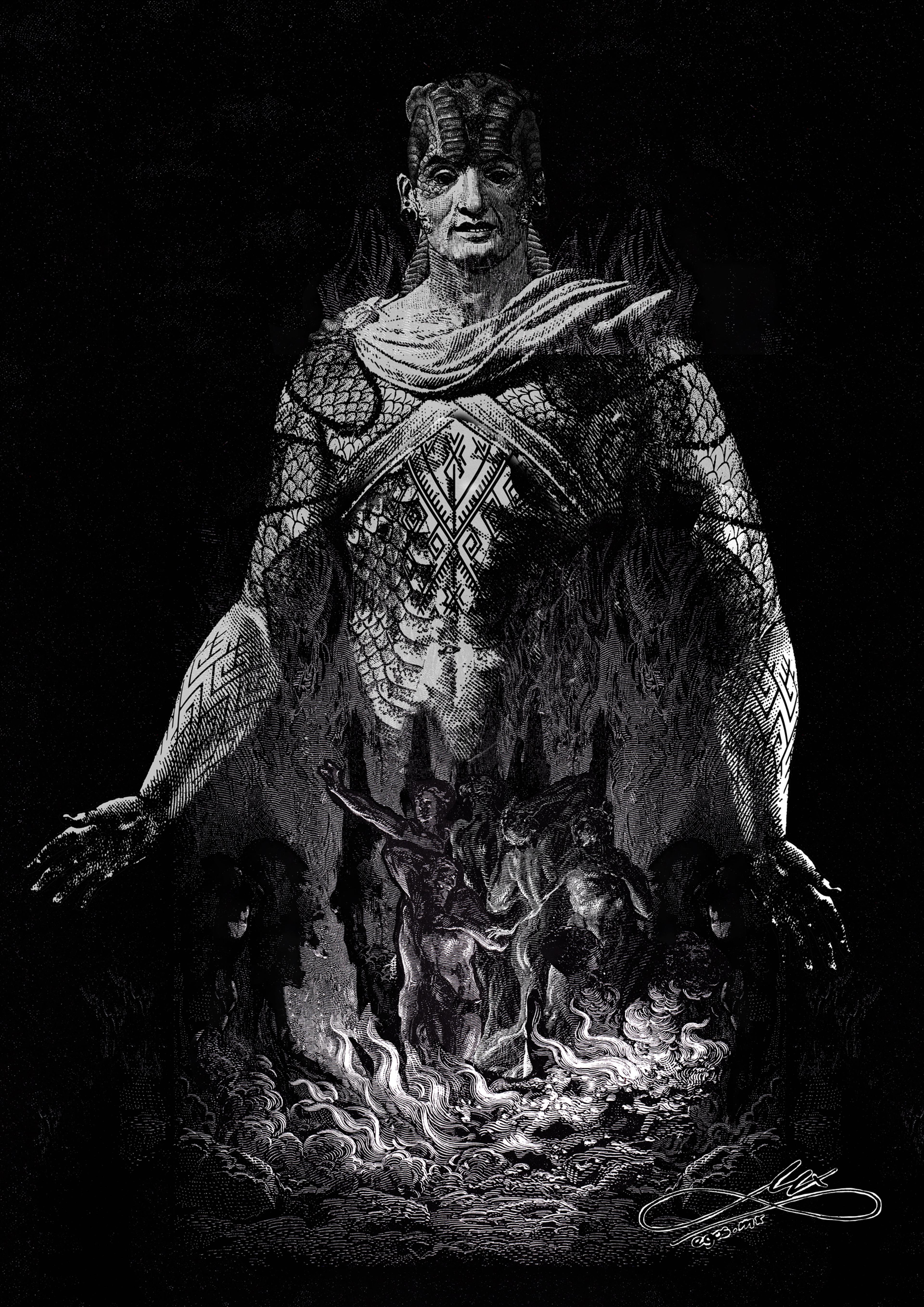
Verse 15 - The Mano
The Mano were created to resemble the deities in their physical form. Strong men and women with a slightly bronzed skin tone, clear eyes and hair the color of tree bark. They were a resourceful and studious people, and grateful for the gifts and guidance of the deities. They learned how to create fire, to hunt and gather food and to speak the language of the Gods. By virtue of their pragmatic nature, the Mano were able to transfer their knowledge to their children, and so were able to establish a thriving settlement within merely a few generations. Along the eastern bank of the river Nir, north of the Eyonan lake, they lived a harsh but peaceful life; filled with curiosity and euphoria for the wondrous world they inhabited. As a society they worshiped the Gods, as well as the Ether itself. Soon, they laid the foundation of a rich alchemist tradition, trying to manipulate the Ether as the Gods did. The deities were proud of them. Teriyas most of all.
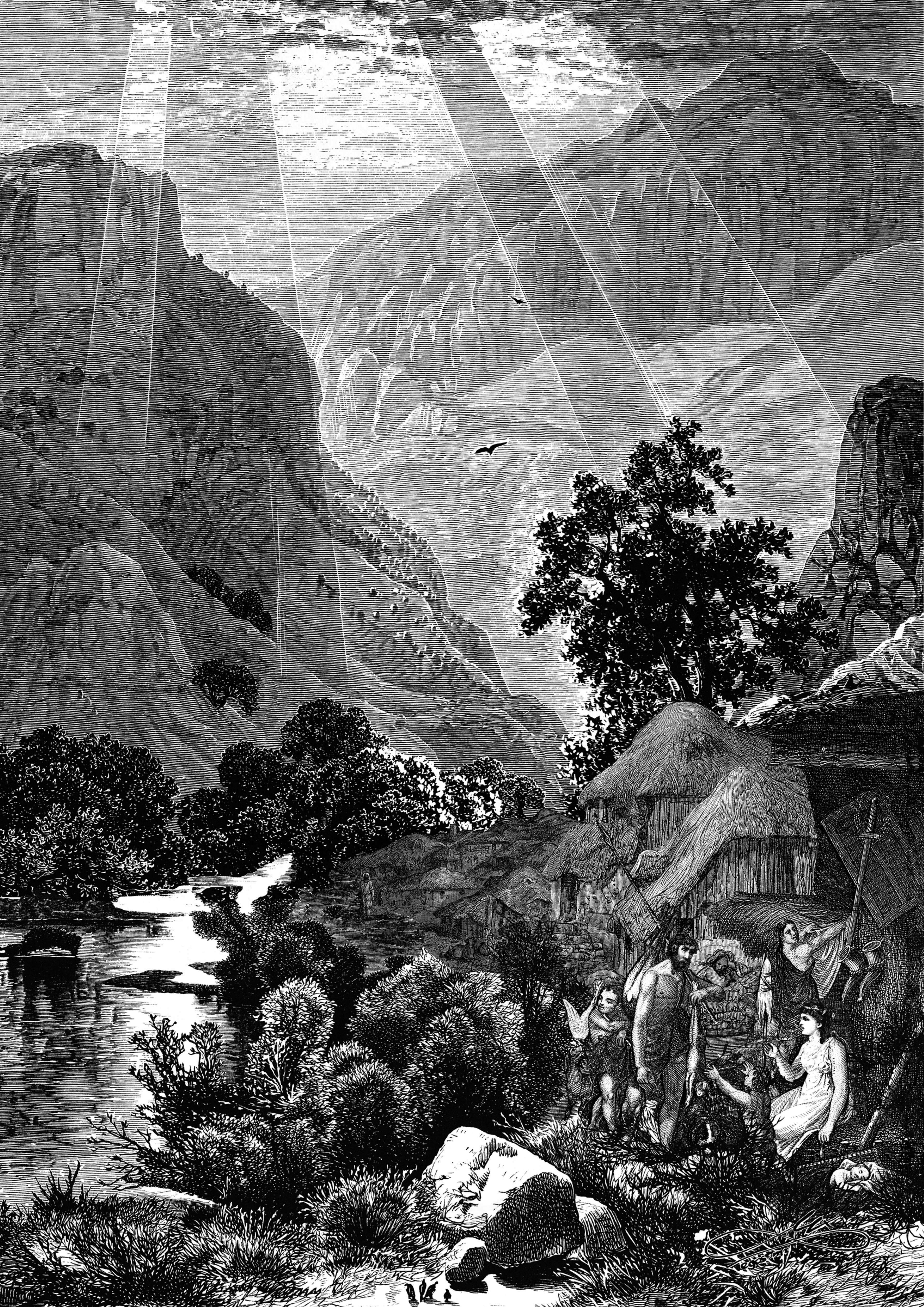
Verse 16 - The Inya
The Inya were created slightly taller and more slender than the Mano and their hair and skin was of a paler hue. They moved in a more gracious way compared to the Mano and intuitively felt the urge to perfect any craft they tried their hands at, no matter how simple, into a series of fluent movements. They spoke the language of the Gods with a more musical cadence and were the ones to write the first songs. Their urge for perfection made them progress more slowly than the Mano, but with each generation their society grew in sophistication and beauty. They revered Eviyra, Goddess of Beauty, above the other Deities, and were drawn to the majestic birch woods in the northern part of the Soviyat Forest, west of the river bank where the Mano resided. There, led by their circle of elders, they established their settlement and celebrated their love for Eviyra with great bonfires and ritual dance. In search of a deeper purpose, the Inya engaged in communal deep thought meditation in an attempt to become one with the Ether.
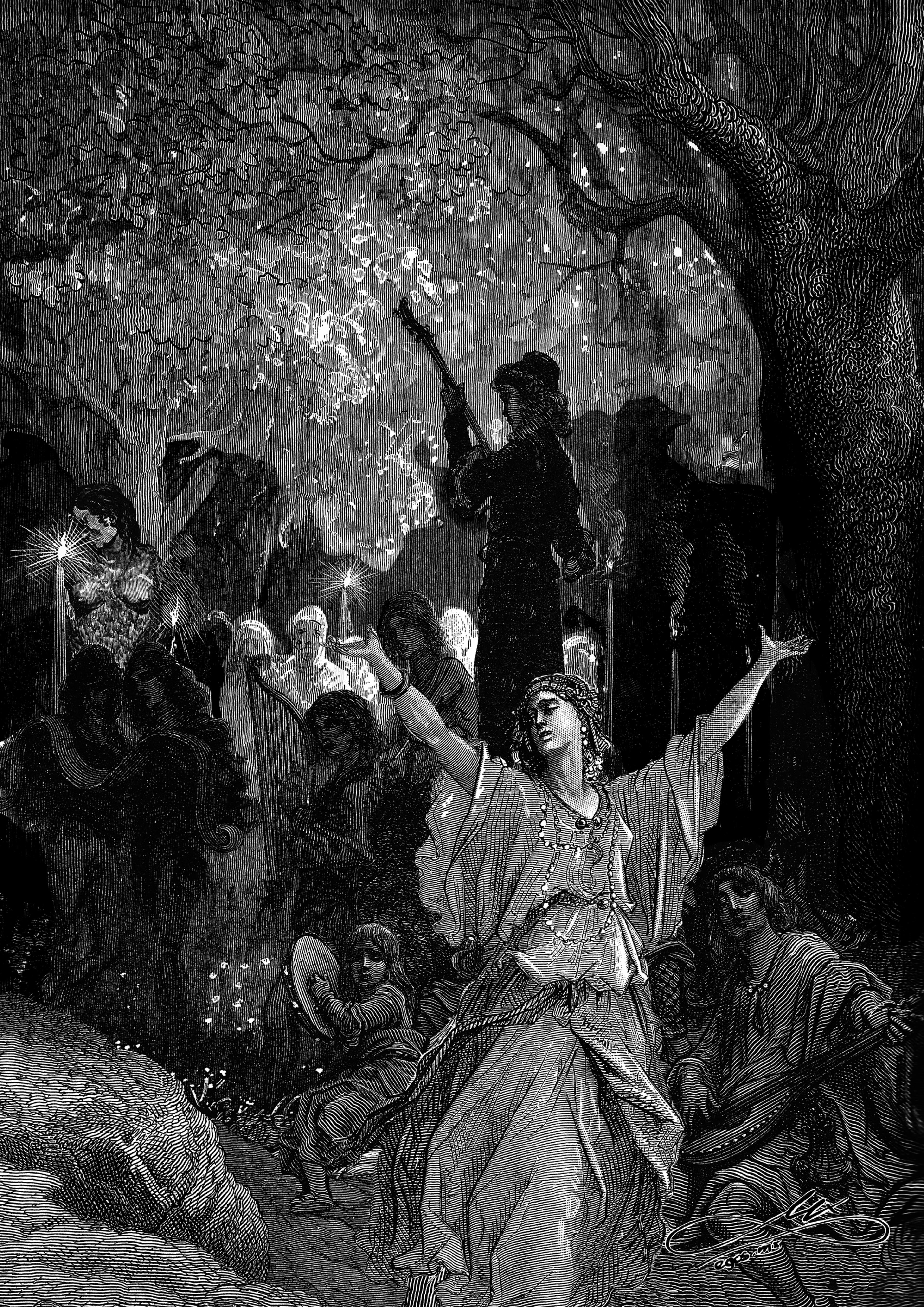
Verse 17 - The wrath of Teriyas
Teriyas found the Inya ungrateful and disrespectful for revering Eviyra but ignoring him, their true creator. He was content to see the Mano share his indignation. They started to mock the Inya and labeled them arrogant and condescending. A clear divide arose between the two human races. Yet, as the Inya society evolved, the Mano men began to seek the companionship of the Inya women, sneaking into the woods to court them. Teriyas was disgusted by this interbreeding, and became determined to keep the bloodline of the Mano pure so that the essence of his beloved creation would be preserved. As for the Inya, his patience had run out. The Inya had betrayed their true creator and Teriyas swore that in secret he would punish them accordingly. However, he couldn’t mask his malicious intent from Merg who was always watching him and who was thoroughly amused by the fact that Teriyas was about to seal the fate of one of his own creations. It seemed as if Teriyas would even the score between them by his own hand.
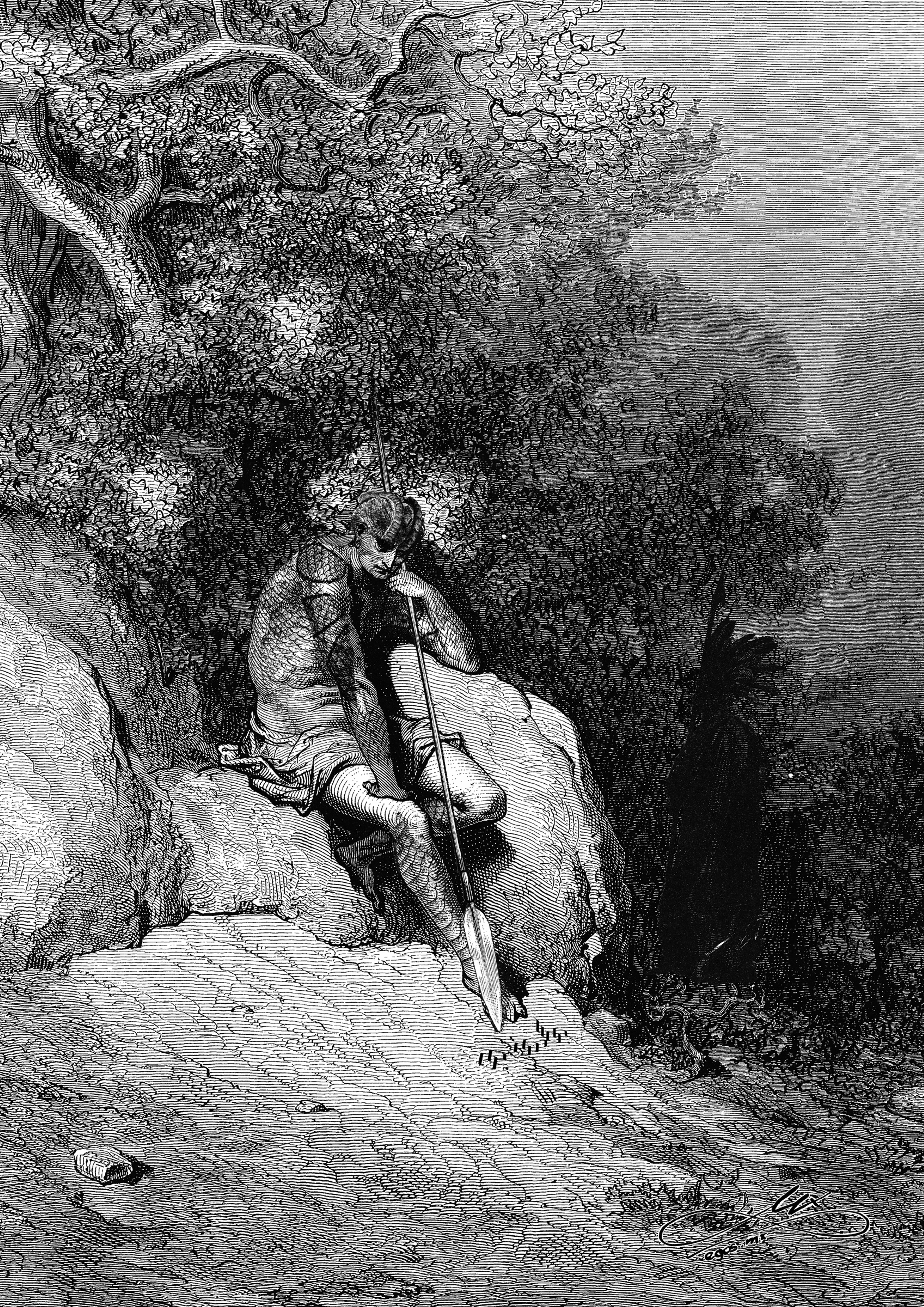
Verse 18 - The banishment of the Inya
One morning, anno 1236, just before daybreak, Teriyas took possession of the body of one of the Mano men, crossed the river, and found his way to the Inya settlement in the western birch woods. There, he violated a young Inya woman, and waited for her husband - a wood carver named Aviliyon Ariyon - to come to her rescue. Teriyas escaped the Inya settlement back to the river, making sure they followed him. He screamed for help until he saw movement in the Mano settlement on the other side, after which he left the body of the disoriented Mano man, leaving him to be killed by the Inya in full view of the Mano settlement. Aviliyon Ariyon witnessed in agony when the Mano armed themselves and started to cross the river. In order to protect his wife and two young sons, Aviliyon Ariyon managed to amass and arm the Inya as well so that they could take a stand against the Mano. He was first to raise his axe against the enemy and his bravery was the reason many Inya followed him into battle. Despite their valor, the Inya were chased away to the south, upon which the Mano proceeded to burn down their settlement in the woods. The Mano swore to massacre them if they ever dared to come back.
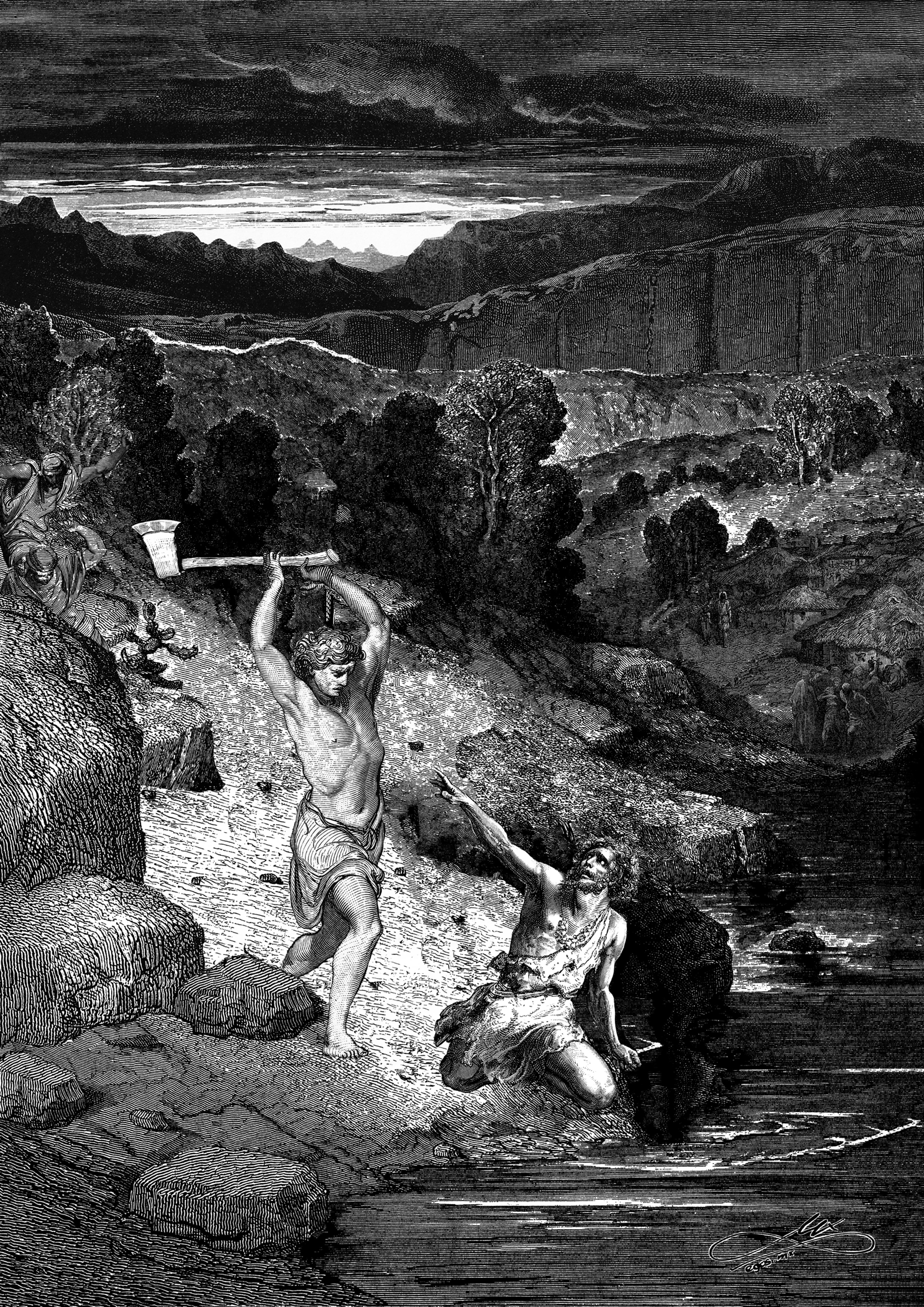
Verse 19 - The lineage of prophets
Battered, the defeated Inya eventually reached the Riya, a river at the southernmost edge of the Soviyat forest. There, they arduously strived towards rebuilding some semblance of an existence. Aviliyon Ariyon was appointed first lord of the ‘pale people’ and tried to uphold peace amongst his subjects. Some of the Inya people were not happy with Aviliyon in the position of leader, because they blamed him for causing the battle with the Mano. They ventured out on their own, and built their own dwellings in the surrounding area to live in solitude, or create small isolated farmstead communities. The child born as a result of the rape of Aviliyon Ariyon’s wife, a halfgod girl, was secretly left for dead in the forest east of the settlement. However, before the wolves could get to her, she was found by an older Inya man that lived with his wife at one of the isolated farmstead communities. The couple raised the child as their own daughter and named her Ninte. As Ninte reached her teens, she started to see glimpses of the future, like the Gods did. Ninte would become the first of the lineage of prophets, serving the Inya over the centuries. Although Ninte eventually bore many children that shared her gift of foresight, the power of the prophets diminished with each generation as their blood mixed more and more with ordinary Inya blood. As a consequence of this, the prophets were forced to reproduce with their own kind in an attempt to bolster their abilities once more. In the end, this goal was achieved, but as their bloodline converged, they decayed into weak-willed beings that were no longer fit to serve the Inya in any meaningful way.
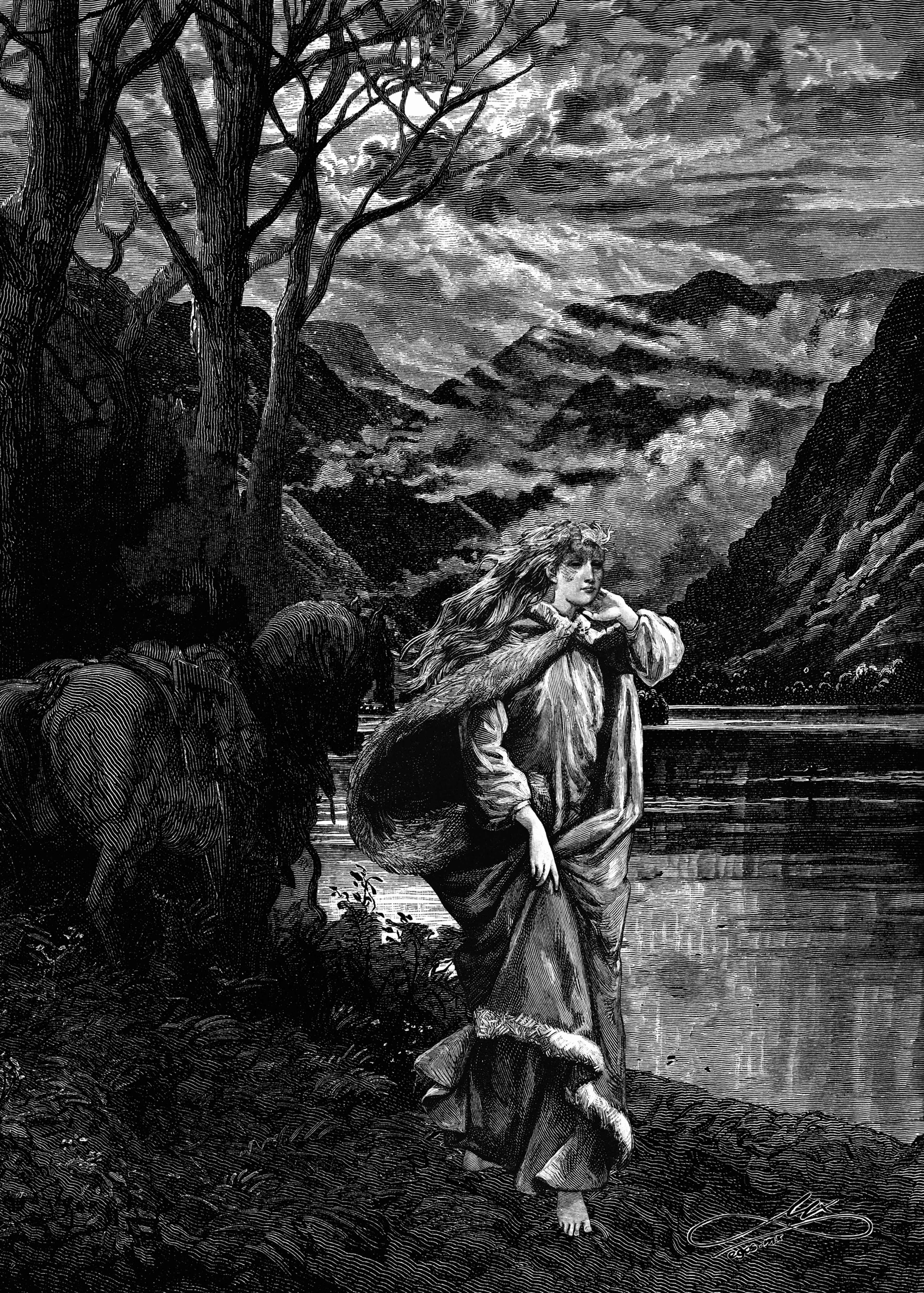
Verse 20 - The heirs of Aviliyon Ariyon
Despite several more cunning attempts by Teriyas to bring down the Inya society from within, Aviliyon Ariyon managed to keep the peace during his lifetime. But, anno 1253, when Aviliyon Ariyon was on his deathbed fighting a strange disease, disaster struck. As the years upon years of Teriyas’ hate mongering finally took effect, Aviliyon Ariyon’s two sons disagreed on who their father’s true heir was and raised arms against each other. This ultimately culminated in a violent battle that decimated the Inya people and ended up claiming the lives of both sons and their mother. As a result of the battle and the help of Ninte, the first of the lineage of prophets, the circle of elders, broke the Inya apart into many clans, hoping to prevent the violence from spreading to the next generations. However, over time, these Inya clans began to fight each other over territory and food. Eviyra was devastated to see her beloved Inya descend into chaos.
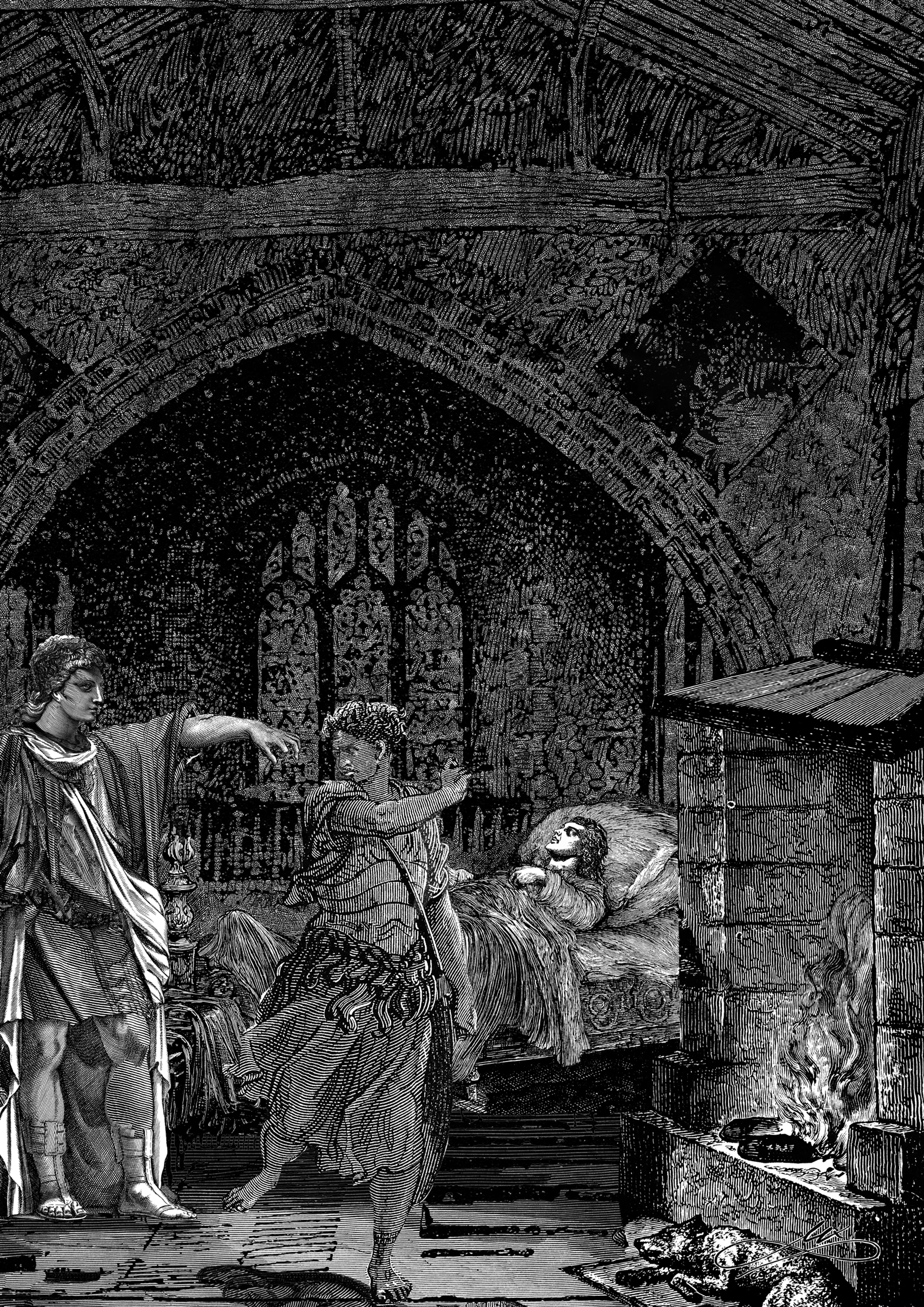
Verse 21 - The Mountain Folk
Anno 1578, a number of the rivaling Inya clans formed an alliance, decided to renounce the blessing of Eviyra, and settled further southwest in the mountain forests of the Teyalus ring. Four thriving mountain villages emerged, with determined inhabitants who lived by hunting and gathering in the forests. Over the centuries, their numbers grew too fast, which ultimately caused a long period of scarcity. The tension between the four once prosperous mountain villages grew, until several of the more influential families of the Mountain Folk attempted to collectively restore order, with the Gindar family assuming leadership. Eviyra was saddened by the further decline of her beloved Inya, and, anno 1745, decided to join the other deities on the march of the Mano.
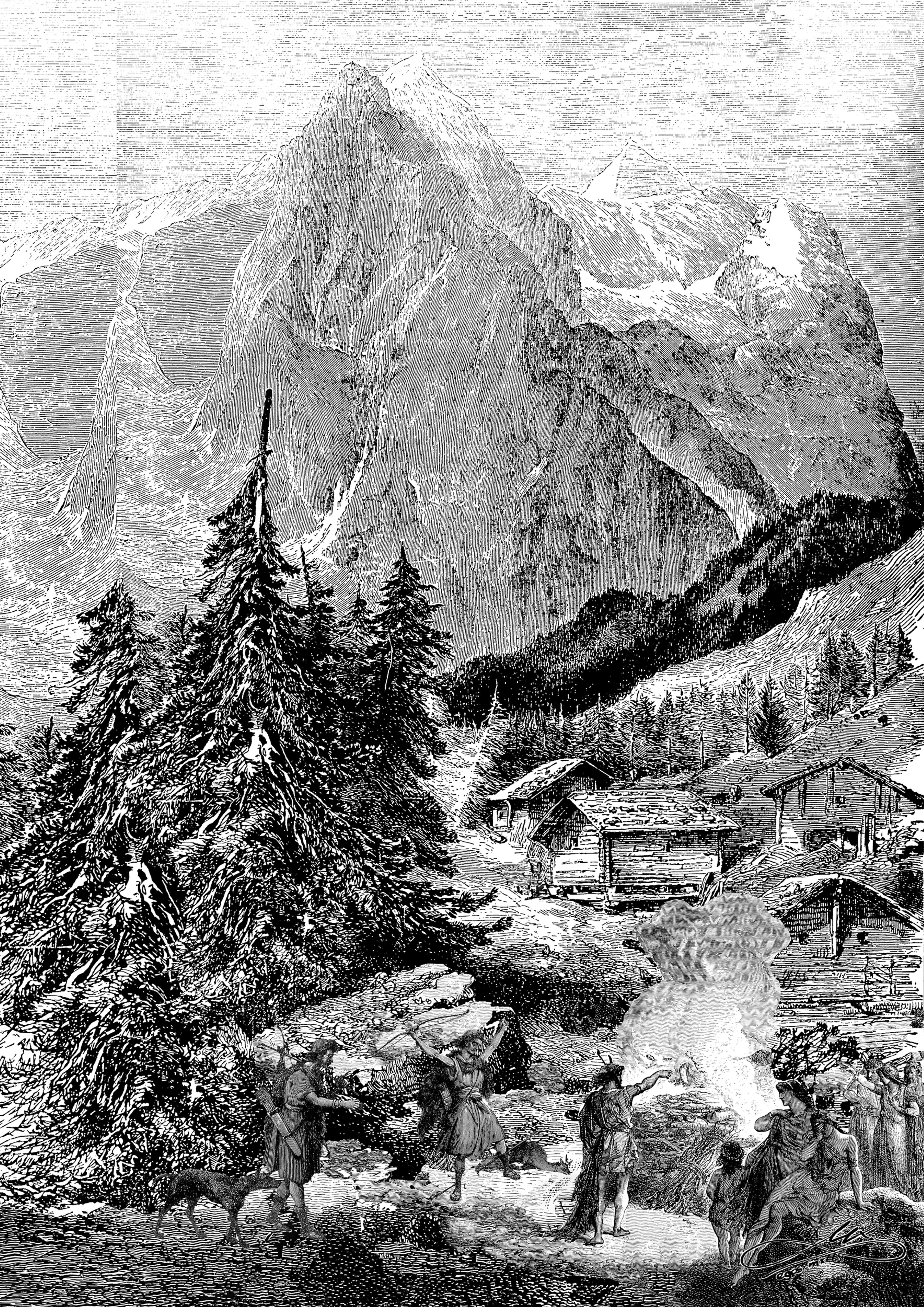
Verse 22 - The famine
For several generations, the Gindar family monarchs ruled the Mountain Folk in a righteous manner, but when the advent of a famine began to threaten their survival, the 12th monarch, named Moriyan Gindar, found himself having to make a most cruel decision. Anno 2325, under pressure from his uncle and most valued advisor, he rationed all leftover food supplies and passed a potential death sentence over many of the old and sick villagers in order to save the few families in power. Unfortunately, the situation in the mountain villages deteriorated quickly, after which the villagers embarked in a collective advance march to the fortress of the Monarch in order to beg him for food. The Monarch initially tried to reason with the starving villagers, but his efforts amounted to nothing. As the Monarch’s uncle stepped in and addressed the angry crowd, he was struck by a poisoned arrow and died soon after. After Moriyan Gindar personally executed the man that shot the arrow and killed his uncle, he rarely appeared in public again, and left the villagers to survive by their own means. Nobody would ever come to know that it was in fact Teriyas who took possession of the archer’s body, an innocent young father named Ingomar Yenat, to yet again secretly unleash mayhem and destruction on the society of the Inya.
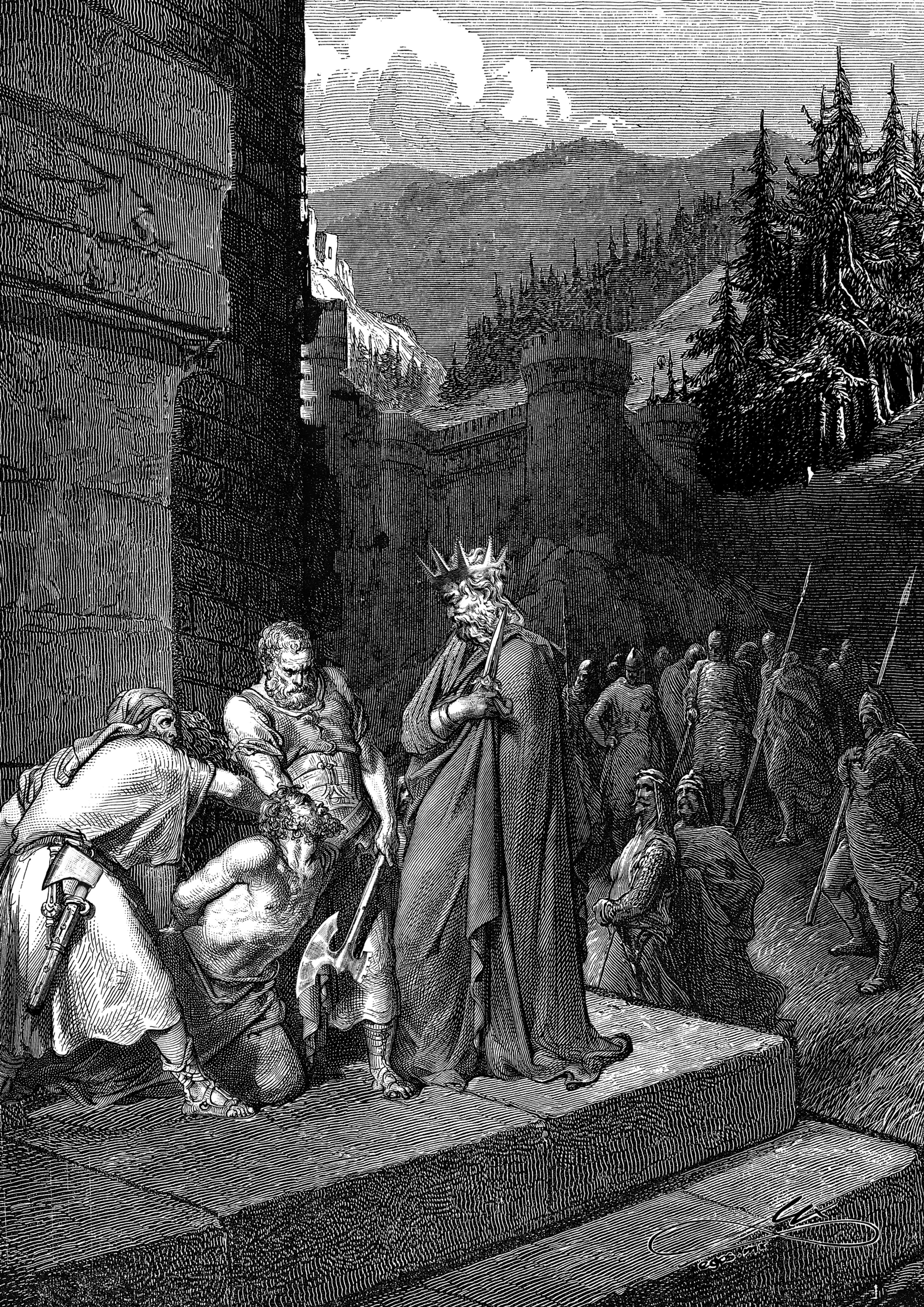
Verse 23 - The fall of the Monarchy
Andorin Yenat was almost three years old when he saw his father being put to death by Moriyan Gindar. As a young man, he was plagued by nightmares about his father’s death and vowed to take his revenge on the Monarch. As the mountain villages were still being ravaged by the enduring famine, he convinced his friend Nilan Ivaran, the son of the village head, to raise arms against the regime of the Monarch. Anno 2343, Andorin and Nilan succeeded in uniting three of the mountain villages and forming an alliance with the northern Anakra clan against the Monarch and the families in power, and they defeated them in a long anticipated battle. It was Andorin who slew the monarch, finally avenging his father’s death. After the Monarch was put to death, the Monarch’s remaining men as well as the surviving members of the families in power fled through the mountains to the west, using the Harkan Pass. For many years, they would wander the empty lands west of the Teyalus Ring, to finally settle in the far west anno 2368, forming a harsh and, in desperate times, cannibalistic society referred to as The Savages. After the battle with the Monarch, the Mountain Folk villagers divided the Monarch’s food supplies and left the southwestern mountain forests of the Teyalus ring in search of a better life. They reached the Northern Lands through the Erkan Pass where they honored their alliance with the Anakra clan and rode out in an attempt to end the clan wars once and for all with one last great battle of the Inya.
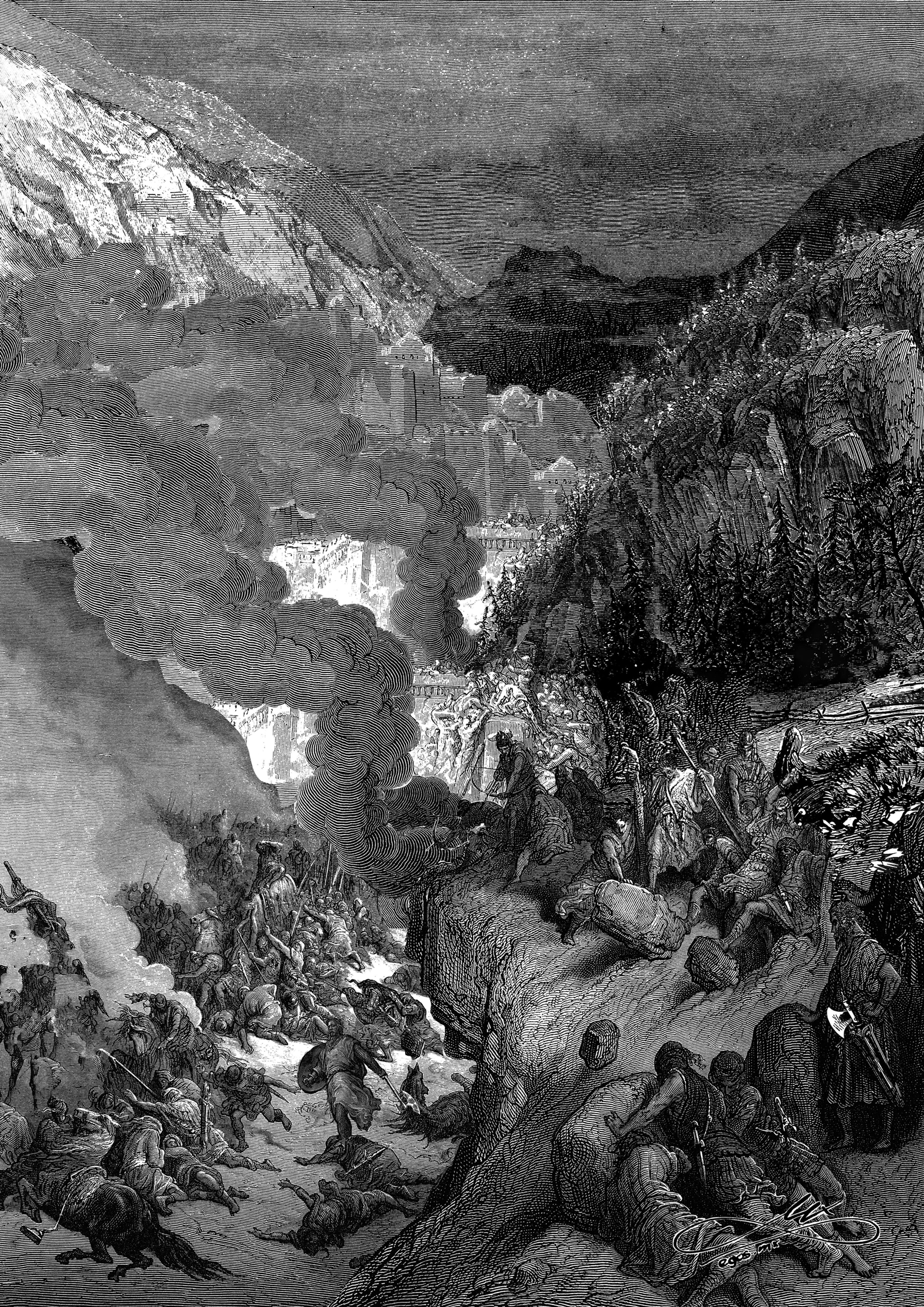
Verse 24 - The horn of Mateyus Daster
After accompanying the Mano for several centuries, Eviyra began to suspect that it was Teriyas who was responsible for the demise of her beloved Inya. She found out how Teriyas had instigated the conflict that had led to the banishment of the Inya, and how he had been inciting hatred among the Inya ever since. When Eviyra got word of the impending last great battle between the Anakra clan aided by the Mountain Folk, and the other clans of the Inya, she decided to covertly return to the Northern Lands in the hope of reuniting the Inya peacefully once again. Once there, she roamed the Northern Lands and encountered the Inya more divided than ever and feared that she might be too late to avert their fate. She appeared before Mateyus Daster, the youngest son of the leader of the Daster clan who had not long lost his whole family to the clan wars. She offered him the choice between two divine gifts, both carefully crafted from the Ether: a lance that would allow him to avenge the death of his family, or a horn that would allow him to reunite the Inya clans against the army of the Mountain Folk. Conflicted but wise, Mateyus ultimately decided to choose the horn and rode out to unite the neighboring clans against the Mountain Folk.
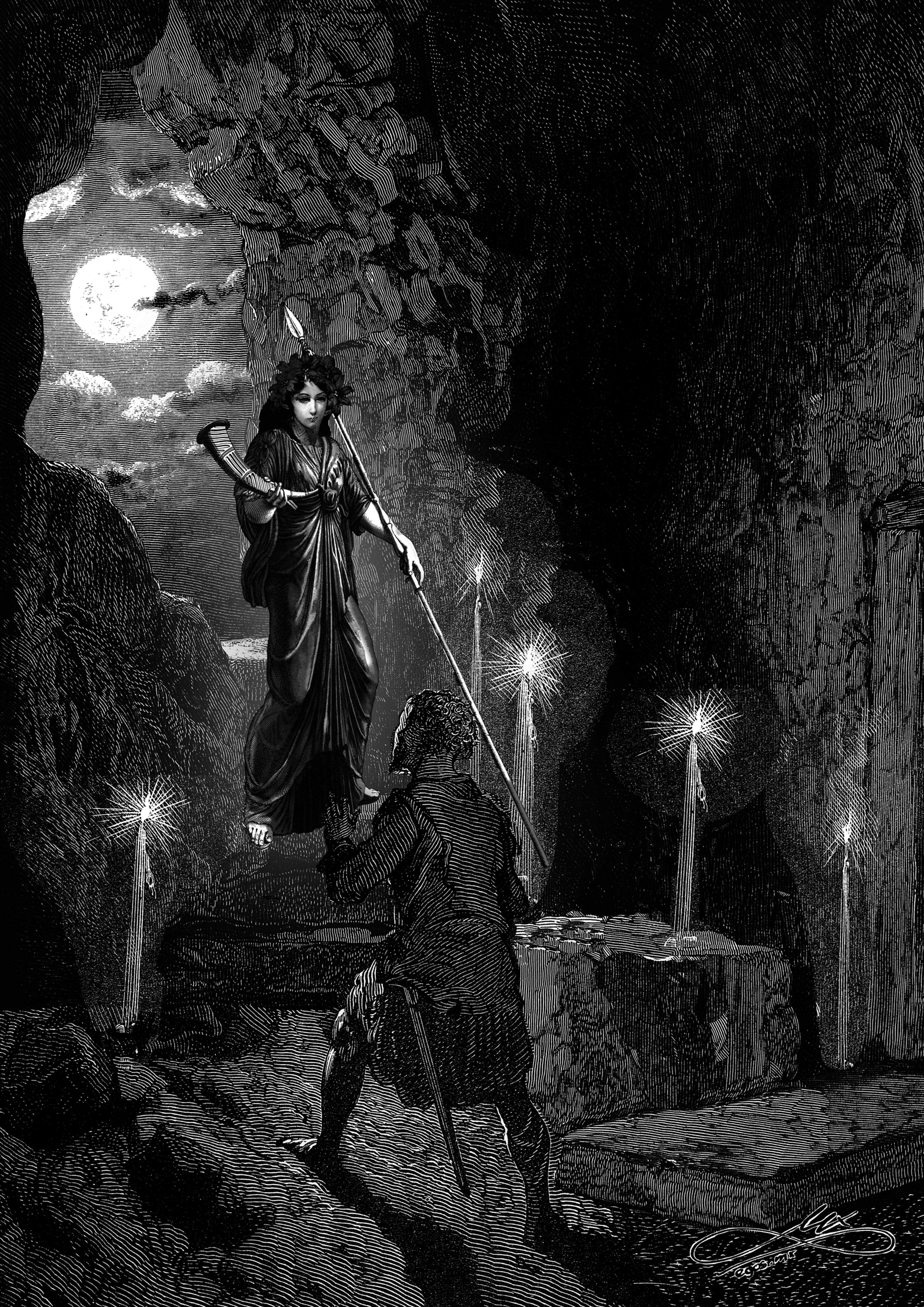
Verse 25 - The founding of Inya, City of the Covenant
When the army of the Mountain Folk and the army of united Inya clans lined up opposite each other on the battlefield, Eviyra appeared before them. All were captivated by her might and beauty, and both armies of the Inya ceased their attack. Eviyra revealed for all of them to see the malicious intentions of Teriyas and how the last great Inya battle had been in the making for centuries. She disseminated amongst them a shared vision of a grand and peaceful city of the Inya that prompted both armies to lower their arms. Teriyas then appeared before the armies as well and threatened to destroy the Inya himself. Eviyra used her powers to stir the Ether and threatened Teriyas to kill them all right there, sacrificing herself in the process. An act of selflessness and bravery that ended up being the saving grace of the Inya people. Anno 2343, Nilan Ivaran and Mateyus Daster forged a new Inya alliance which led to the founding of the city of Inya, also known as the ‘City of the Covenant’. As the city slowly grew into Eviyra’s vision, the Inya embraced a sober way of life looking for spiritual salvation, grateful for the chance they have been gifted with to rebuild their society. Over the centuries, Inya would become a thriving city unrivaled in beauty.
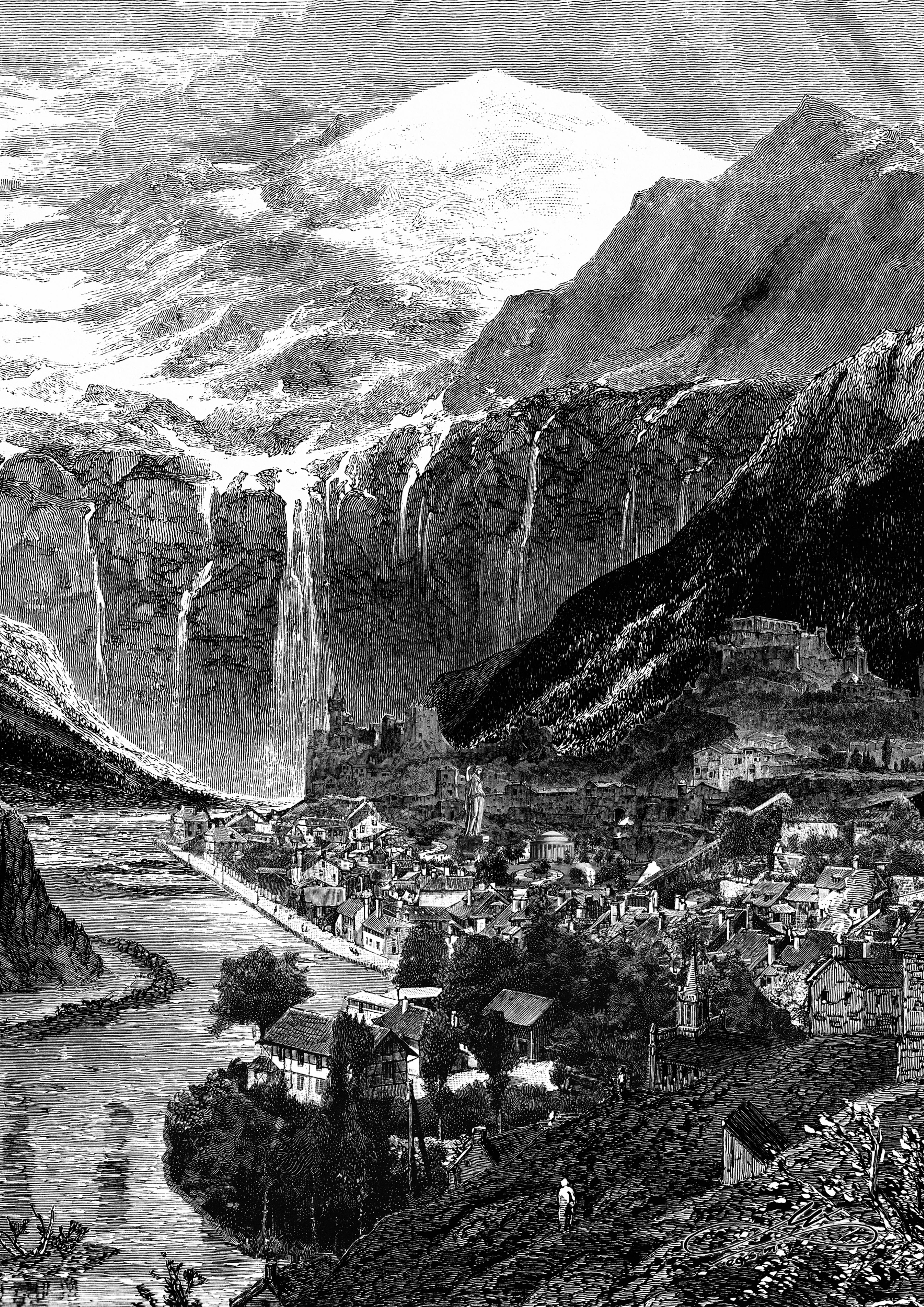
Verse 26 - The march of the Mano
Anno 1745, half a millennium after the banishment of the Inya, since abandoned to their fate, Teriyas, God of Creation, came to wish for his beloved Mano to complete their education. He wanted to see them thrive on their own, without the help of the Gods, which would be the final testament to his magnificent creation. The deities led the Mano away from the plains of Eyonan, on a long journey through their majestic realm that would later be known as ‘The March of the Mano’. On this march, the deities taught the Mano to survive the harsh and wild nature of their realm and how to live from different types of lands through hunting and gathering, farming or fishing. The march eventually lasted many months before the Mano finally reached the eastern shore of the Large Inner Sea, where they established a permanent settlement: the City of Mano. After the first steward of Mano, Lord Daviyan Alderik, was appointed, the deities returned to their vault in the Nirta Mountains. But not before presenting Daviyan Alderik with one last gift to secure his position: a number of invaluable crystals forged from the Ether. Although the Ether crystals seemed to have a strange and dark attraction to him, he broke all but one crystal into thousands of small shards to be used as the city’s first currency. In the end, the Mano had made the Gods proud, but not all of them. After Teriyas and Gidiyon had set in motion the ice age that had led to the extinction of the Giant Beasts, Merg had since been brooding over a plan to strike back, and had found Nadale more than willing to help him conjure his evil doings.
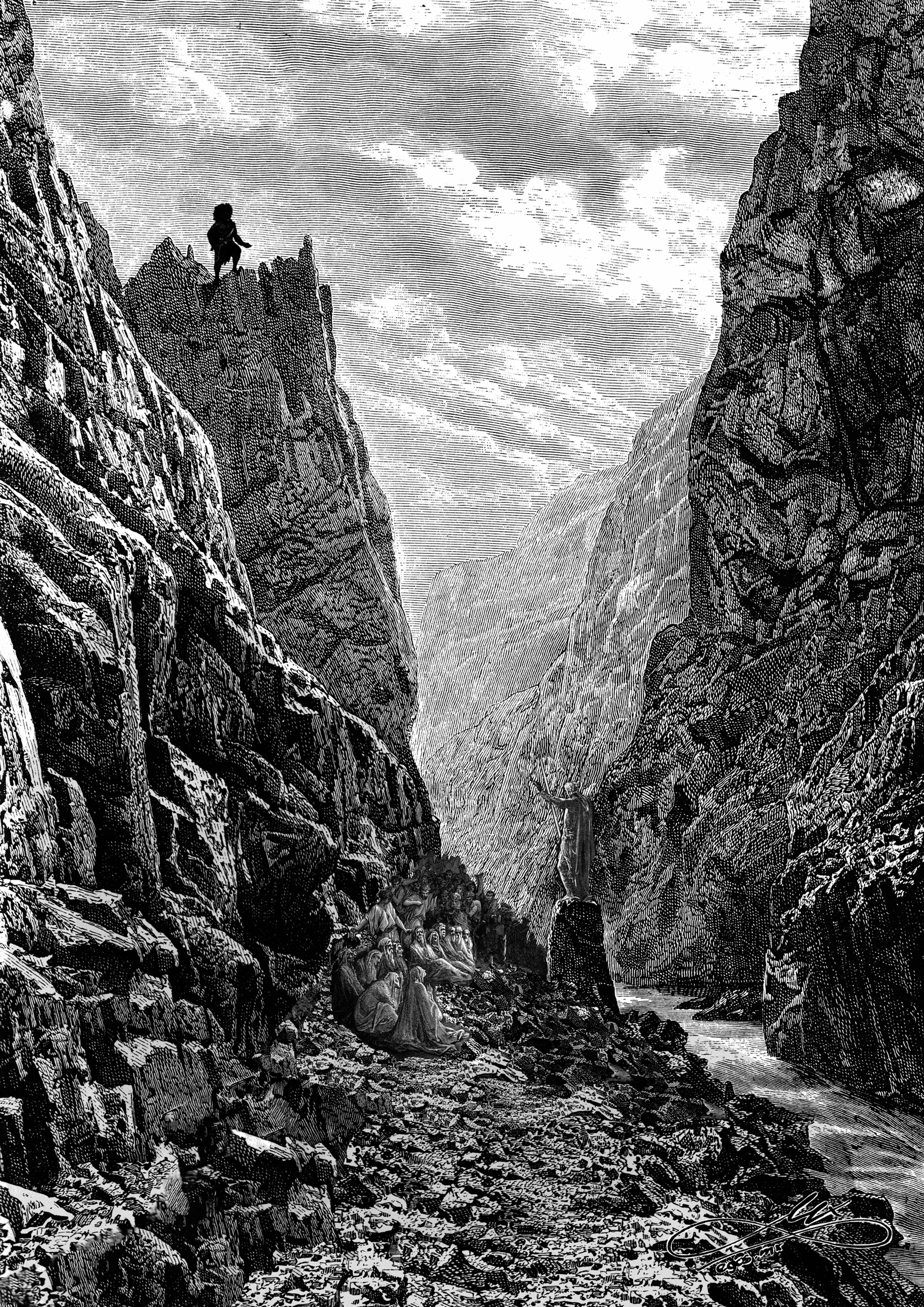
Verse 27 - The Grey Order of Watchers
Under the leadership of steward Daviyan Alderik and his descendants, the knowledge the deities bestowed upon the Mano was put to industrious use. The city of Mano was built up, farms, fields and orchards were laid out across the outskirts of the city and beyond, and several landlords were appointed to oversee the cultivation of livestock and crops in their respective estates. In addition, the guild of alchemists was officially founded, and was given the sole mission of recreating the Ether crystals given to the Mano by the Gods. Despite the great efforts of the city stewards and their landlords though, a food shortage arose within a century of the founding of the city, as a result of a crop plague, secretly created by Merg and Nadale, that destroyed the yield of the harvest many years in a row. The Mano suffered from hunger and poverty, and crime grew quickly. An infamous gang of robbers was formed who plundered the landlords' scarce supplies and terrorized the city. The city steward and landlords prayed to the Gods for help, and Psikar, God of the Spirit, answered. Anno 1900, Psikar chose several hundred Mano men and women to bestow upon them the gift of immortality and the power and might to form the Grey Order of Watchers, who were to serve the people of Mano as protectors, judges and executioners for the centuries to come. With the help of the Grey Order, the peace in Mano was restored, and the crop plague purged from their farmlands. Merg and Nadale were soon forced to watch in agony as the city of Mano flourished after all. The Mano population steadily grew, and it was not long before the four islands of the Black Archipel became inhabited and new settlements sprang up along the coastline. Anno 2113, the first of many kings of Mano - King Alanor - was crowned.
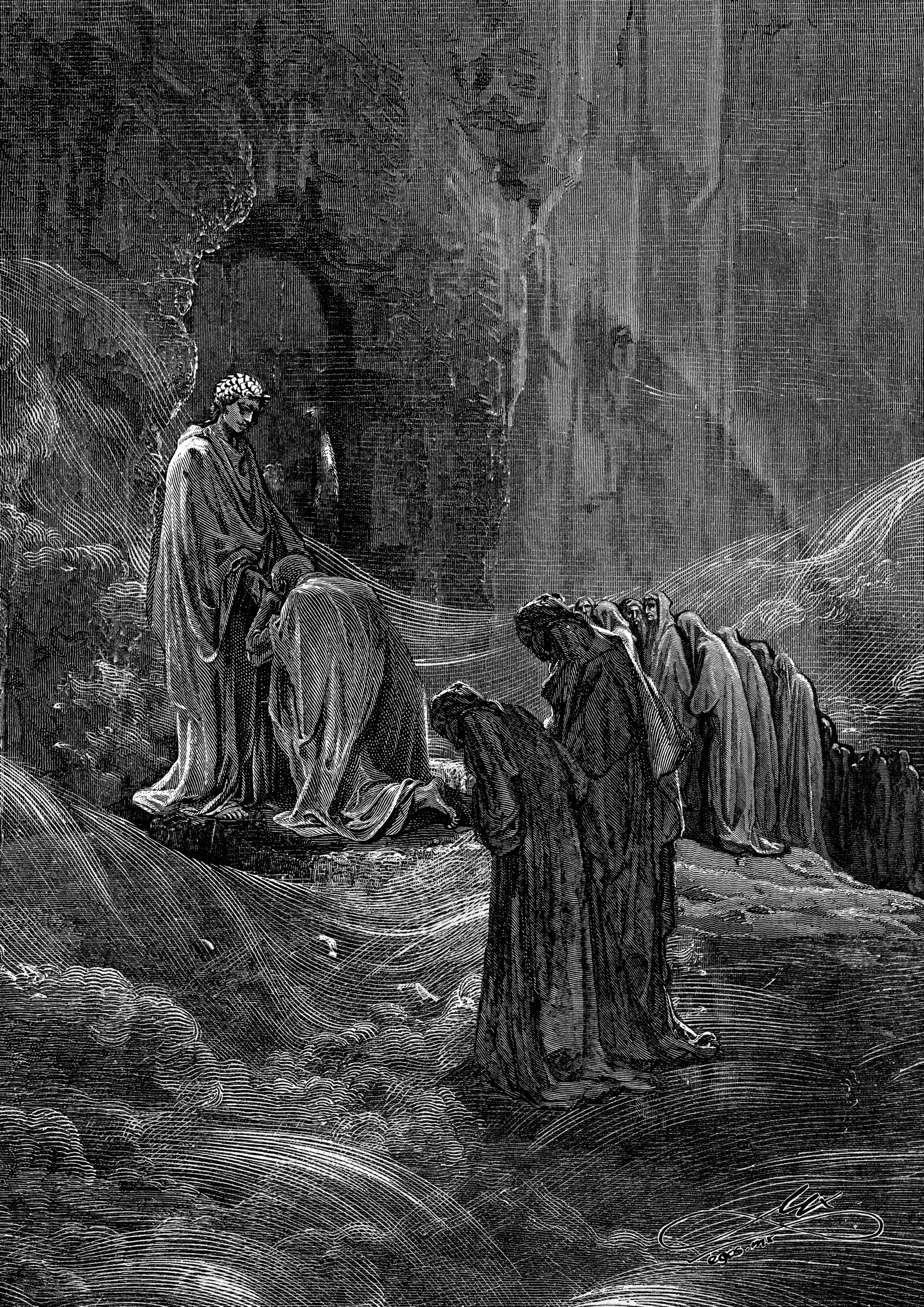
Verse 28 - The weapon of artifice
Anno 2455, Mano had become a prosperous city with rich traditions and rituals, and proud citizens. With ill intent, Merg appeared to King Davinor in secret, who was from the same bloodline as Mano’s first King, and convinced him to expand his kingdom further to the north-west. At Merg’s insistence, the King ordered one of his captains, a former master blacksmith named Ervingale Danu, to found a settlers town on the western bank of the river Dayno, at the edge of the Linar Forest. This settlement came to be named Varna. The Linar Forest, however, was the home of the Guyins, the race of half-giants that had survived the ice age. As the Mano considered the Guyins to be a mere legend, they didn’t realize the grave danger they were in. Except for Ervingale Danu himself, who was slowly driven to madness by the agonizing visions Merg was sending him, which showed him how the Guyins would slaughter the Mano people if he did nothing to stop it. Merg manipulated Ervingale to put his all into creating a magnificent weapon, a sword made of a substance called Ether-steel, to save the Mano people from the maces of the war hungry half-giants. When Ervingale finally finished the weapon, after several sleepless nights haunted by Merg’s visions, his rational mind was as good as gone. When Merg then claimed the Ether-steel sword for himself as his prize weapon, Ervingale refused to part with it, and agreed to bind his soul to the sword, leaving his body behind to die. This ultimately made the sword into the mighty weapon Merg had always longed for. Not long after, to the amusement of Merg, the Guyins attacked the settlers' village. Even though the Grey Order came to their aid, most of the villagers were killed. The Guyins had taken back their territory.
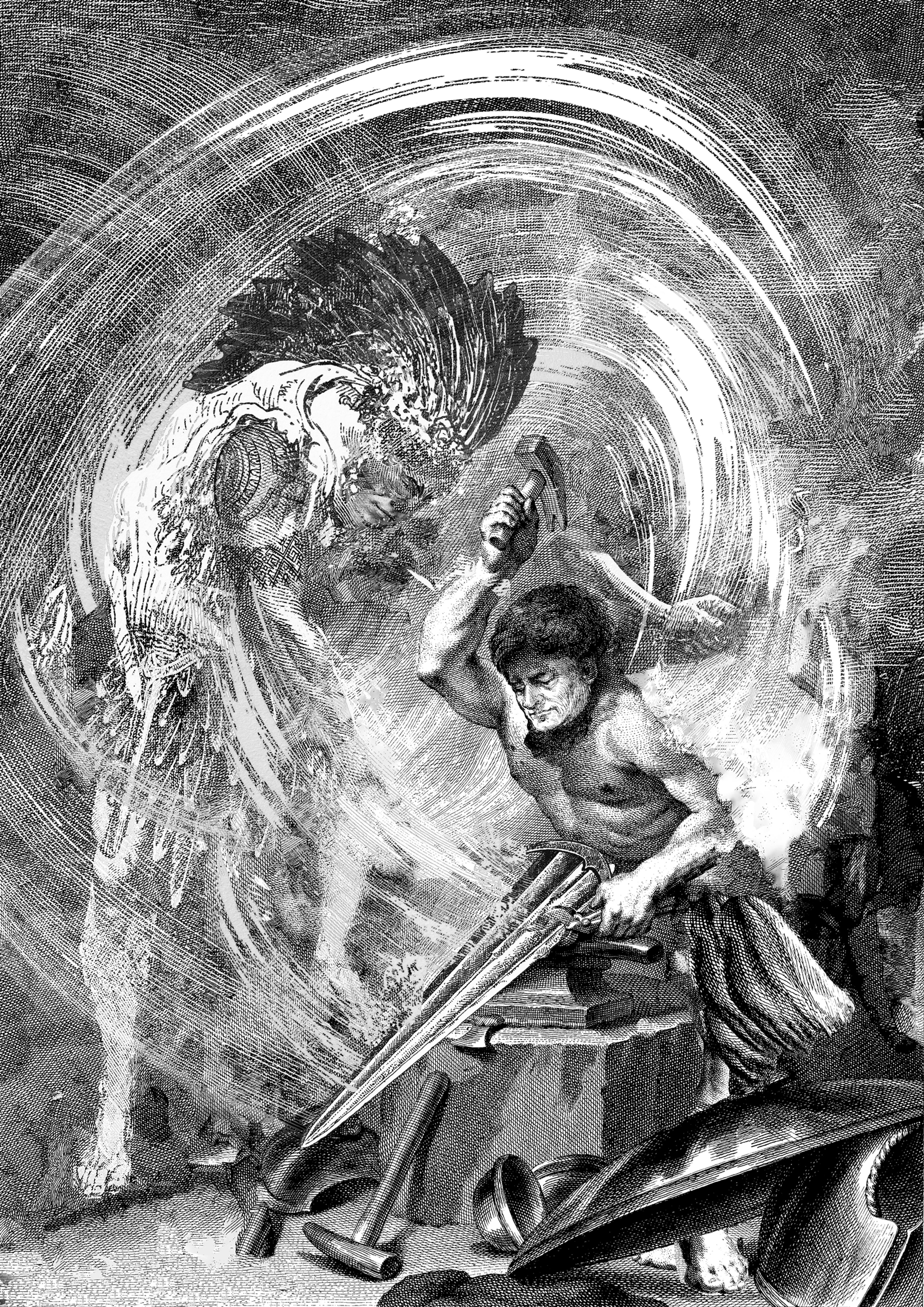
Verse 29 - The demise of the Guyins
In the months after the Guyins destroyed Varna, more and more disturbing reports reached the city of Mano about groups of Guyin scouts that were seen on boats in the Large Inner Sea and on foot on the eastern banks of the Dayno. The Grey Order was deployed by the king of Mano to keep their lands safe. The village of Lavinyord, across the Dayno from Varna, was abandoned out of precaution. The inhabitants of Lavinyord moved to the city of Valonar, closer to the capital, which had a city wall and was easier to defend. However, anno 2457, the Guyins set sail with a large-scale war fleet straight to the city of Mano in order to strike their enemy directly at the heart of power. Their fleet was spotted first by the inhabitants of the Black Archipel, and soon after by boatsmen from the harbor of Mano. When the people of Mano saw the hundreds of Guyin galleons appearing on the horizon, they prayed to their creator for salvation. And when the Guyins reached the harbor and began their attack on the city of Mano, Teriyas came to their aid, accompanied by the savage army of the Nayil. A great battle was fought, and although the Guyins vastly outnumbered the soldiers of Mano, the Grey Order and the army of the Nayil, they were eventually defeated. All captured Guyin warriors as well as the remaining Guyins from the Linar Forest, were confined to the dimming darkness of the vast system of massive caverns and stone forests below the deep waters of the Lake of Anadan. There, the Guyins were forced to spend the rest of their days hunting the strange nightly creatures that had come there before them, having been cast out by the Gods.
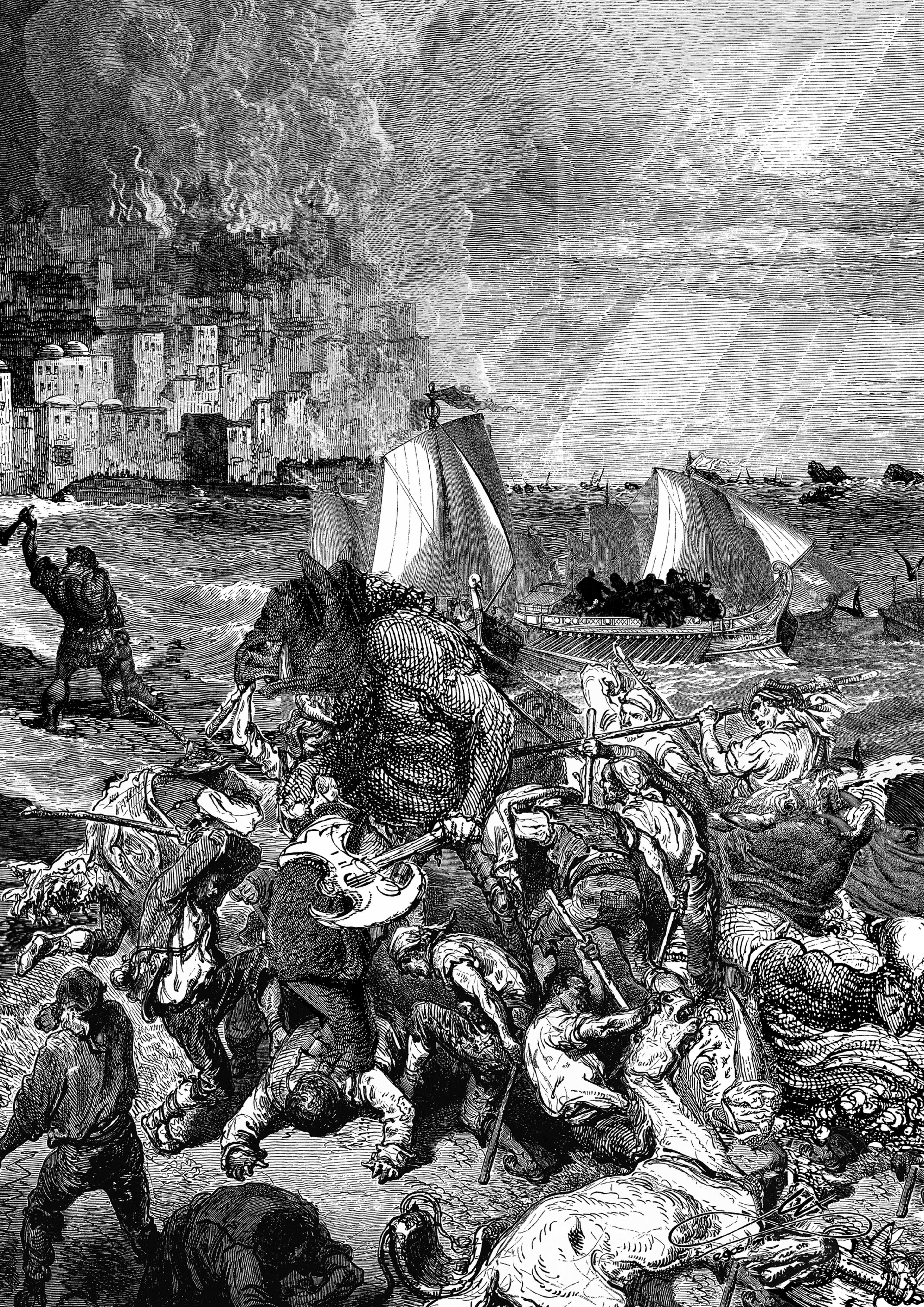
Verse 30 - The children of Nadale
After a long period of peace in the kingdom of Mano, Nadale, Goddess of Fire, conceived a number of sons and daughters with different Mano men. It soon became clear that these demigods, as well as their descendants, not only inherited some of Nadale’s divine powers, but also her reckless nature and urge for destruction. They came to be known as ‘the children of Nadale’, and as they grew in numbers over the years, they began to abuse their powers in order to steal the invaluable Ether crystal shards and to gain more political control over the capital. In secret, the Grey Order was commanded to keep a watchful eye on them. Anno 2758, spurred by Merg and Nadale herself, the children of Nadale made a violent attempt to overrun the city of Mano and overthrow the king’s reign. With the help of the Grey Order, their plot was foiled, but nonetheless resulted in a long lasting violent civil war, which spread to the other cities in the kingdom. In order to escape the continuous bloodshed, large groups of citizens were forced to flee the kingdom to seek shelter elsewhere. The inhabitants from the southernmost island of the Black Archipel escaped to the south on their own, and a large group of noble families from different cities escaped to the east to settle in the Geron Forest, led by two members of the Grey Order: the Watcher brothers Yarnus and Arvenus. As Teriyas watched his beloved creation fall apart, he swore to eradicate all children of Nadale by ripping their souls from their bodies one by one. He managed to kill many of them, which caused the order in Mano to be restored. However, some escaped his fury. Frustrated, Teriyas turned his anger towards Nadale herself, and managed to overpower her. He imprisoned her underground in a sea of fire and molten rock beneath the Vayda Mountains. Despite Nadale’s power, she was not able to escape her imprisonment. However, her mighty attempts transformed the rock around her into Ether crystals that became crushed and pushed out through the lava channels into the river Niyu. Teriyas kept the location of Nadale’s prison a secret from the other deities, and, in doing so, transformed Merg into his mortal enemy. When he saw his chance, Merg attacked Teriyas in such a rage, that he would have killed Teriyas and himself as well, due to the disturbance in the Ether. However, the other deities, all fearful for their lives, stood by Teriyas and collectively they managed to fight off Merg’s attack. Badly wounded and defeated for the first time, Merg, permanently weakened, left the other deities behind to roam the Land of Spirits in search of his beloved Nadale.
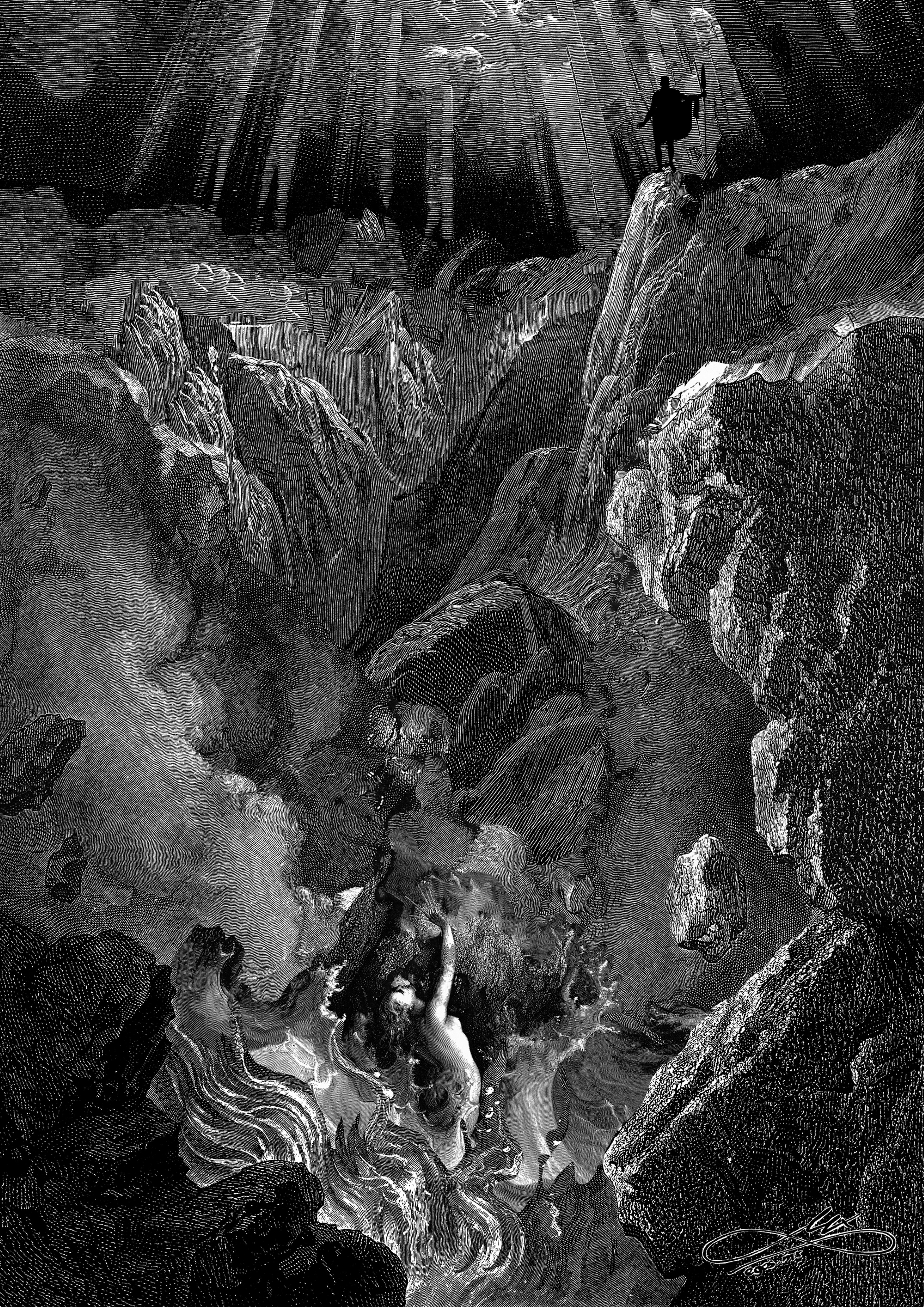
Verse 31 - The Cattle Folk
The refugees who fled the civil war in Mano from the southernmost island of the Black Archipel settled in the far south, where temperatures were high and the ground was dry and gritty. There, anno 2761, they built a new society and bred livestock across various different farm regions. They were a poor people, who would come to be known as the Cattle Folk. But over the centuries, they became experts in breeding strong and inexhaustible oxen and horses. One of the cattle keepers in the struggling Irindar region, named Alyart Dunedas, was a close descendant of Gidiyon, God of the Heavens, and was able to tell the future by looking at the movement of the stars and planets. He told his master, the head of the Irindar region, that he had foreseen great fortune for his master’s family and cattle keepers. The only thing he had to do was send his last few prize animals to the palace in Mano, as a gift for the King. After his master refused to follow up on his request, Alyart Dunedas stole the animals from him, and brought them to the palace in Mano himself. On his way home, he was captured and killed by a group of men who sought the bounty that his master had put on his head. When they delivered the lifeless body of Alyart Dunedas to the head of the Irindar region, they found a contract drawn up on parchment among his belongings, declaring the commencement of a cattle trade treaty between the Irindar region and the royal family of Mano, which would come to bring them all enormous riches and power. As the story spread among the Cattle Folk, other descendants of Gidiyon, God of the Heavens, came forward and founded a guild of sages, to join forces in predicting the future by looking at the movements of the stars and planets.
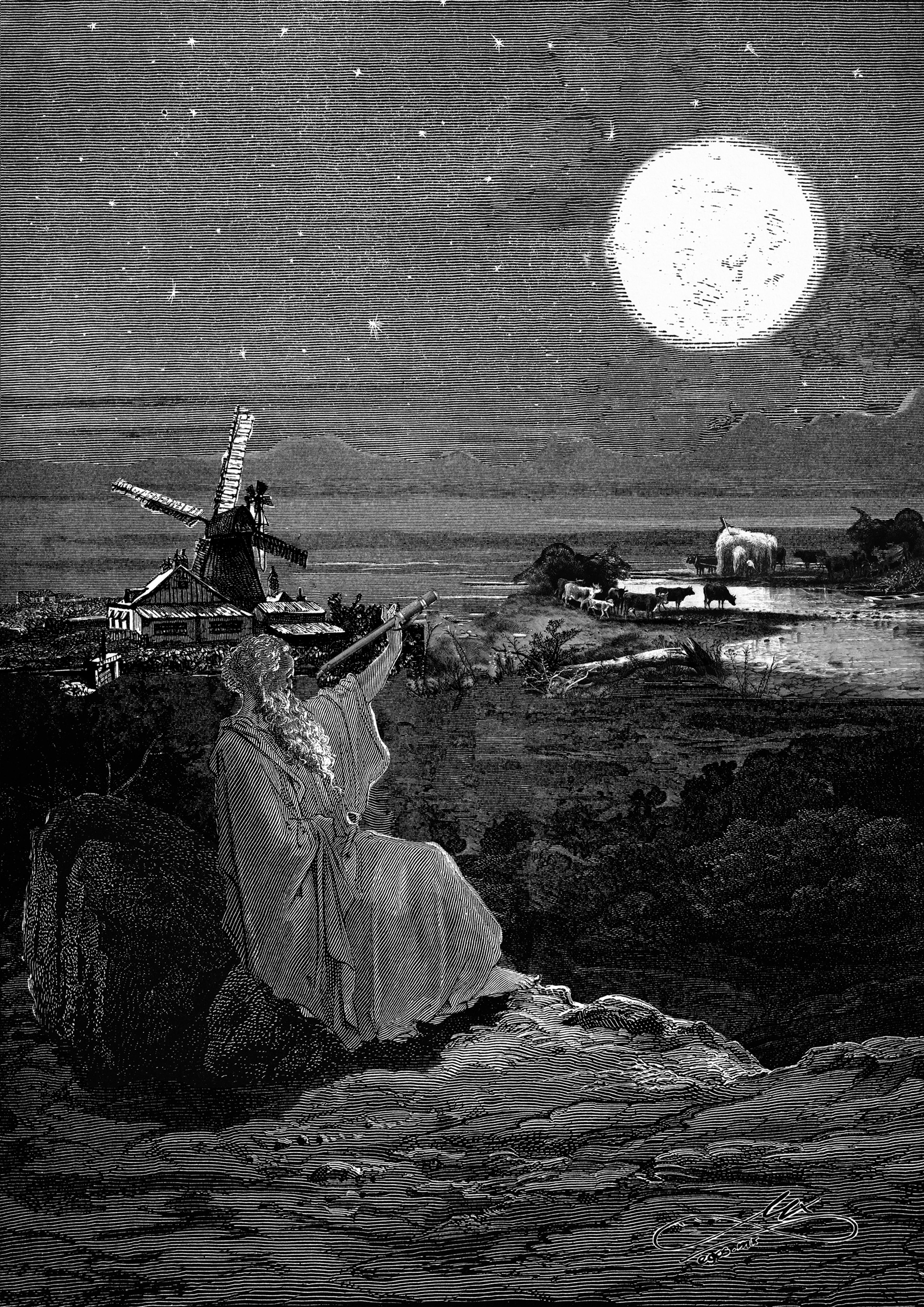
Verse 32 - The founding of Angiyona
Anno 2763, the large group of noble families that escaped the civil war to the east, led by the Watcher brothers Yarnus and Arvenus, started a new forest village called Grindur and then set about foraging the Geron Forest and hunting deer and boar. The Watcher brothers had been rivals in their mortal existence. They had chased after the same woman for years, who, in the end, took her own life because she loved both brothers equally. Although the brothers initially honored the Grey Order’s sacred oath to serve the people of Mano above all else, they eventually let their unresolved past come between them. Their strife caused a rift between the noble families of the Mano, who, when Yarnus decided to leave the Geron Forest, were compelled to choose sides. In the end, a large number of families decided to follow Yarnus to the north, past the Vayda Mountains and on further, to find uncharted lands for their people to thrive. After a long journey they settled on the banks of the Eranor Lake, at the northern edge of the Truyin Forest. There, Yarnus drew upon his powers to fertilize and irrigate the land, resulting in an abundant yield. Just a few years after their first harvest, anno 2775, they founded their city, which they named Angiyona.
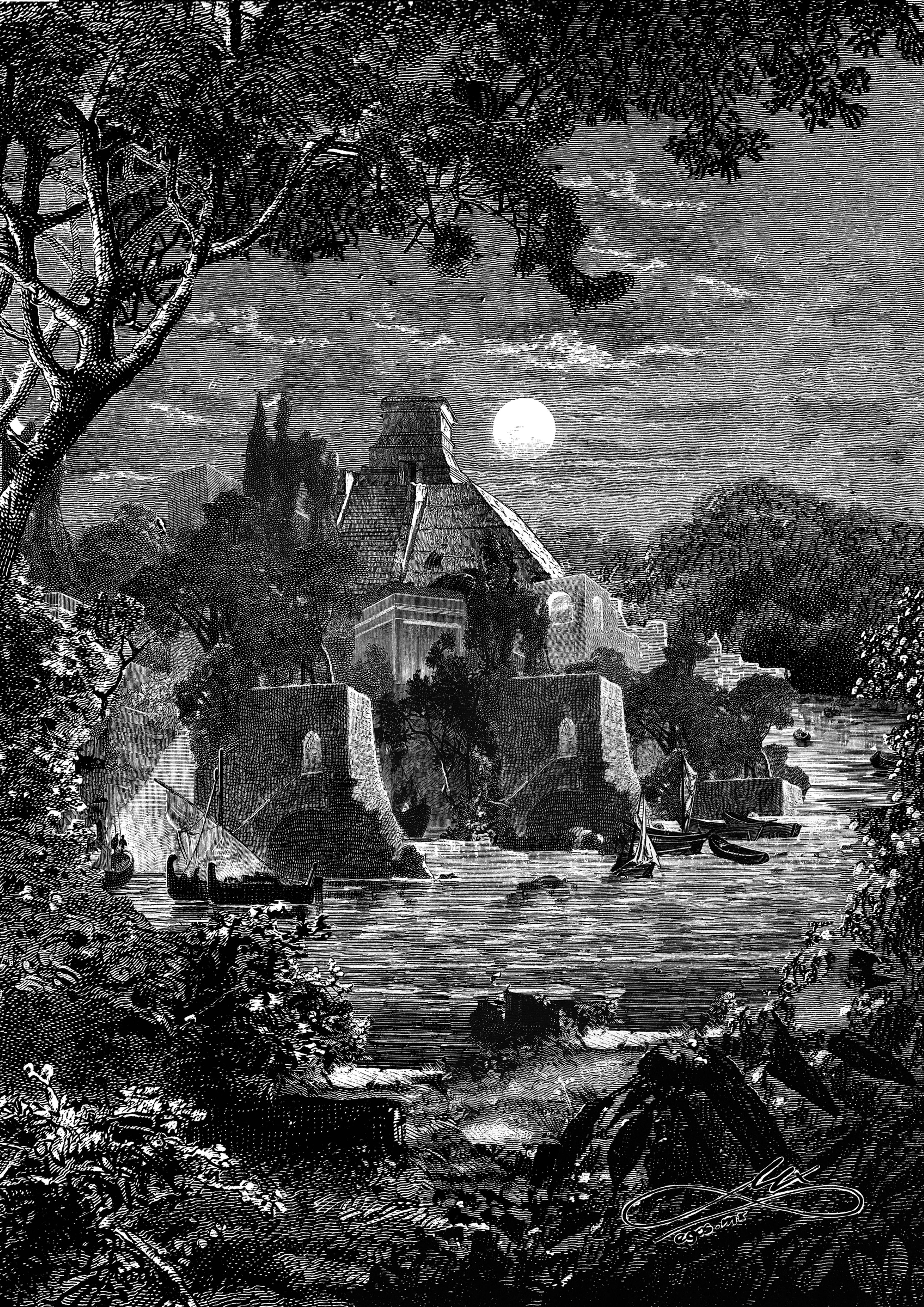
Verse 33 - The founding of Kalur
After Yarnus had left the Geron Forest, it didn’t take long before peace was restored among the noble families that had chosen to remain with Arvenus in the forest village of Grindur. Now the rivalry between the Watcher brothers was a thing of the past, Grindur thrived under Arvenus’ leadership. However, anno 2809, about three decades after Yarnus left Grindur, the goddess Nadale, who had now been incarcerated for about fifty years beneath the Vayda Mountains, saw a chance to escape. Among the villagers of Grindur was an orphan girl named Esma, one of the few surviving descendants of Nadale. When Esma reached womanhood, she began to show signs of her divine heritage. From that moment onwards, Nadale was able to speak to her through the Ether. She began manipulating Esma’s mind, with the intent of bringing the Watcher Arvenus to her, in the hope he would be able to free her with his powers. She made Esma start a forest fire that destroyed a significant part of the Geron Forest south of the village of Grindur, and eventually the village itself. This forced Arvenus and the villagers to leave the Geron Forest and travel north, to look for a new place to settle. Esma, burdened by guilt, left Arvenus and the noble families behind, in search of redemption elsewhere. However, manipulated by Nadale, the goddess made sure Esma rejoined Arvenus and the noble families, to atone for her sins, and lead them to the river Niyu at the southern foothills of the Vayda Mountains. There Esma brought Arvenus to see the fragments of Ether crystals in shallow parts of the river, which had been revealed to her through the visions imparted by Nadale. Intrigued, Arvenus founded a new settlement along the banks of the Niyu river. The villagers hunted the mountain range for horned mountain sheep and fished the river for salmon, while Arvenus and Esma, guided by the voice of Nadale, followed the river upstream and ventured deeper and deeper into the mountains, exploring hidden caverns and underground lakes. In a deep chasm, they found a large pocket of Ether crystals, so dense that they could hardly resist their deceptive beauty. Arvenus used his Watcher powers to shield them from these powers as best as he could. At that moment Nadale’s voice was suddenly clear and loud in Esma’s mind and she realized they had reached the prison of the goddess. Nadale commanded Esma to make the Watcher Arvenus free her from her prison. However, Arvenus and Esma fell prey to the crystals’ dark power. Mesmerized by the Ether crystals, Arvenus decided to uphold Nadale’s imprisonment, so that the goddess would generate even more Ether crystals over time in her efforts to escape. In addition, when he came to comprehend the manipulative power that Nadale had over Esma, he killed her, making sure he was the only person who knew the location of Nadale’s prison. With the help of the villagers, Arvenus started venturing back into the mountains and began mining the crystals. In the beginning, this was a very slow process, but over time - driven by greed and hunger for power - their craftsmanship and quarrying tools became more advanced and they uncovered enormous riches. Within just a few years, having gradually grown more and more delusional, their ways changed completely, and they transformed into a fanatic society of miners. Several decades later, anno 2864, they founded a new city on the slopes of the mountain range, named Kalur, which was fortified with immense city walls and a robust military hierarchy was installed so as to protect their precious Ether crystals against any outsiders who might come across the citadel.
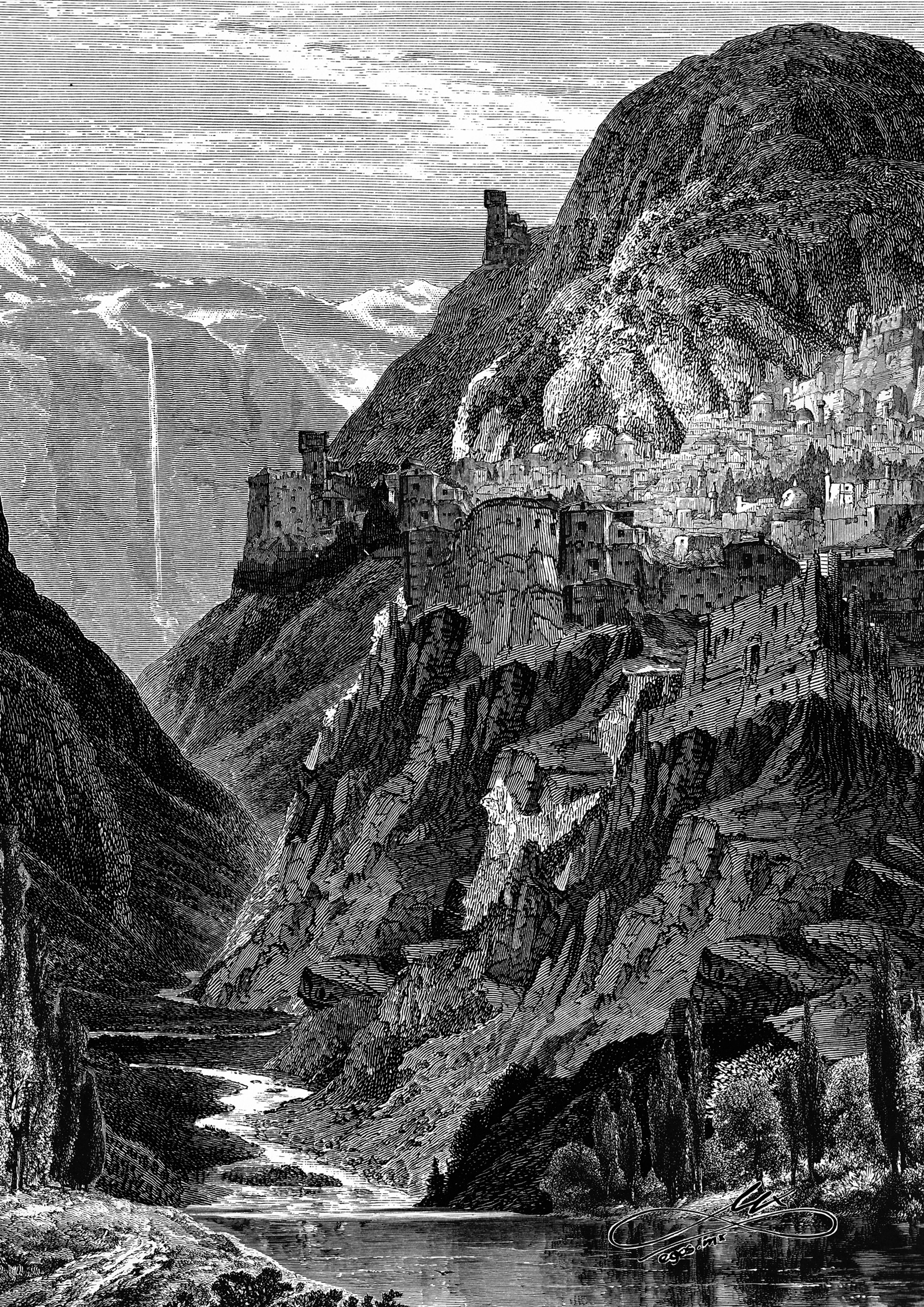
Verse 34 - The human sacrifices
When Psikar, God of the Spirit, was permanently wounded in a fight with Gidiyon, God of the Heavens, anno 3248, the power of some of Psikar’s incantations diminished over time. So did the incantation from which the Watchers derived their immortality. As a result, the Watchers suddenly began to grow weak. They developed an all-pervading hunger that could only be satisfied by devouring the lifeforce energy of other bespirited creatures. Animals would nurture them, but not nearly as well as human beings. If the Watchers did not feed, hunger would slowly drive them to madness and beyond, to the point that their minds and bodies became so brittle they died a gruesome death. Given that the power of the Watchers had become an essential pillar to the different societies of the Mano - protecting and maintaining their cities and farmlands - city stewards and landlords began to sacrifice human lives in order to preserve the Grey Order of Watchers. For a time, it was common for the heads of houses to conceive children with their concubines, in order to sacrifice them to the Watcher that was assigned to their lands. Merg, God of War, whose wounds had never healed since he had been separated from his beloved Nadale, observed how the Grey Order of Watchers and the Mano societies degraded as he roamed the Land of Spirits. However, without Nadale at his side, it brought him little pleasure that Teriyas’ creation was failing after all. Weak as Merg had become, he had lost all purpose. He had become a recluse, turning to the Ether in the hope of receiving visions of the future in which he might be given some kind of sign of being reunited with Nadale.
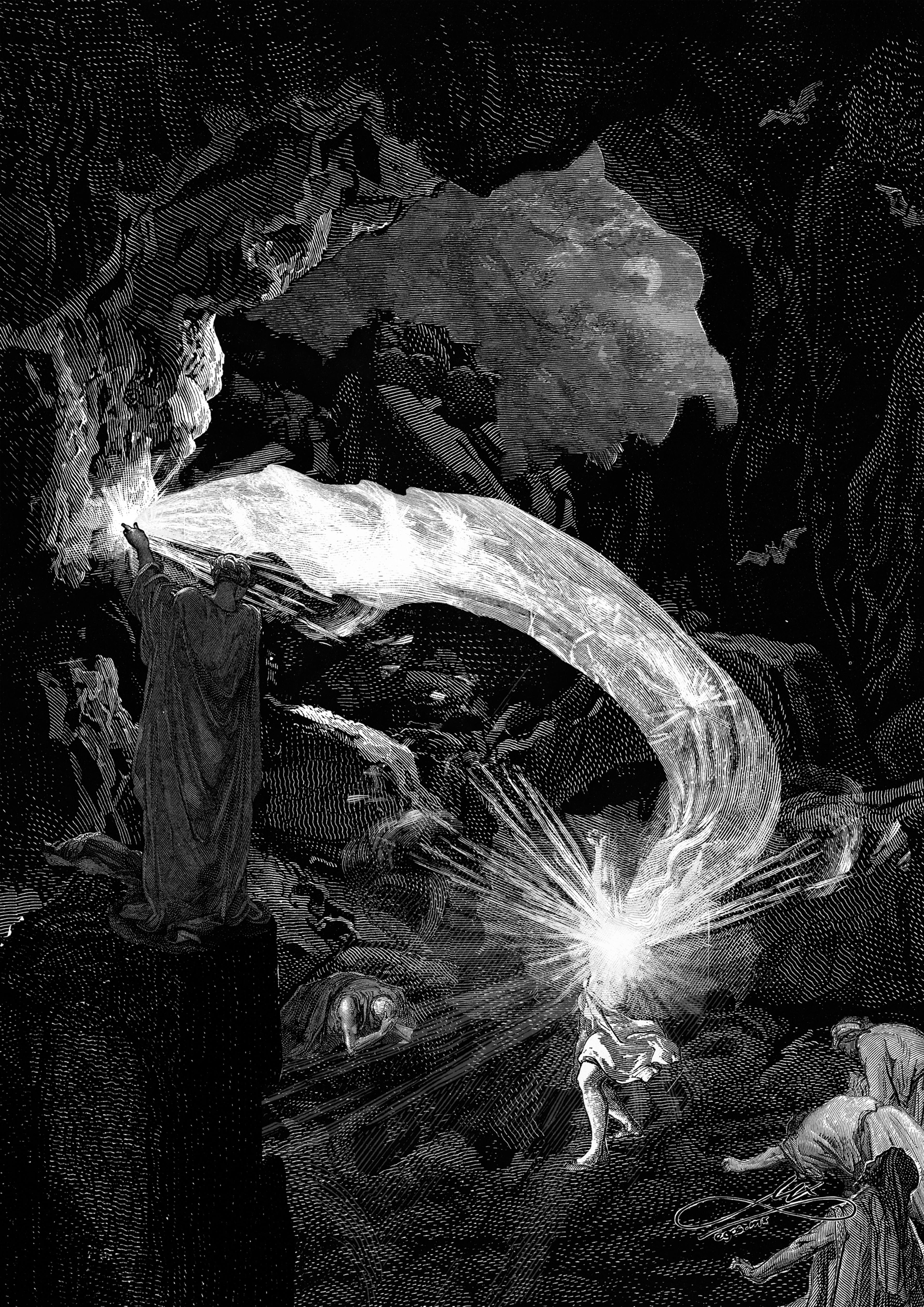
Verse 35 - The hunt for the Watchers
As time passed, the hunger of the Watchers proved impossible to satiate. Several Watchers began to descend into madness, despite the numerous human sacrifices they were offered. And more and more Watchers would in turn come to follow this fate. It was Yarnus, the Watcher of the city Angiyona that was the first to lose control. In a blind rage, driven mad by insatiable hunger, he made his way through the city, feeding on the terrified citizens. With every soul Yarnus devoured, his powers grew and grew. And he didn’t stop. In their despair, the citizens of Angiyona prayed for deliverance, and it was Teriyas yet again, God of Creation, who came to the aid of the Mano, accompanied by the savage army of the Nayil. Eventually, after a fierce and destructive battle, Yarnus was killed, leaving the city of Angiyona in complete and utter ruin. Hungry for more, Teriyas then rode out with the Nayil army to kill the other Watchers as well. Many of the Watchers perished, but a few dozen managed to escape, fleeing into exile far and wide across all corners of the Land of Spirits to live lonely lives in hiding. Yarnus' brother Arvenus was one of them. After hastily leaving his precious city of Kalur, taking as many Ether crystals as he physically could, he dared to travel to the abandoned city of Angiyona, to find the lifeless body of his brother floating in the Eranor Lake. The lake’s water was stained red with Yarnus’ blood. Arvenus hid in the Vuyon swamp, filled now with grief over the lifelong feud with his brother, and vowed to take revenge on the Nayil, and on Teriyas himself.
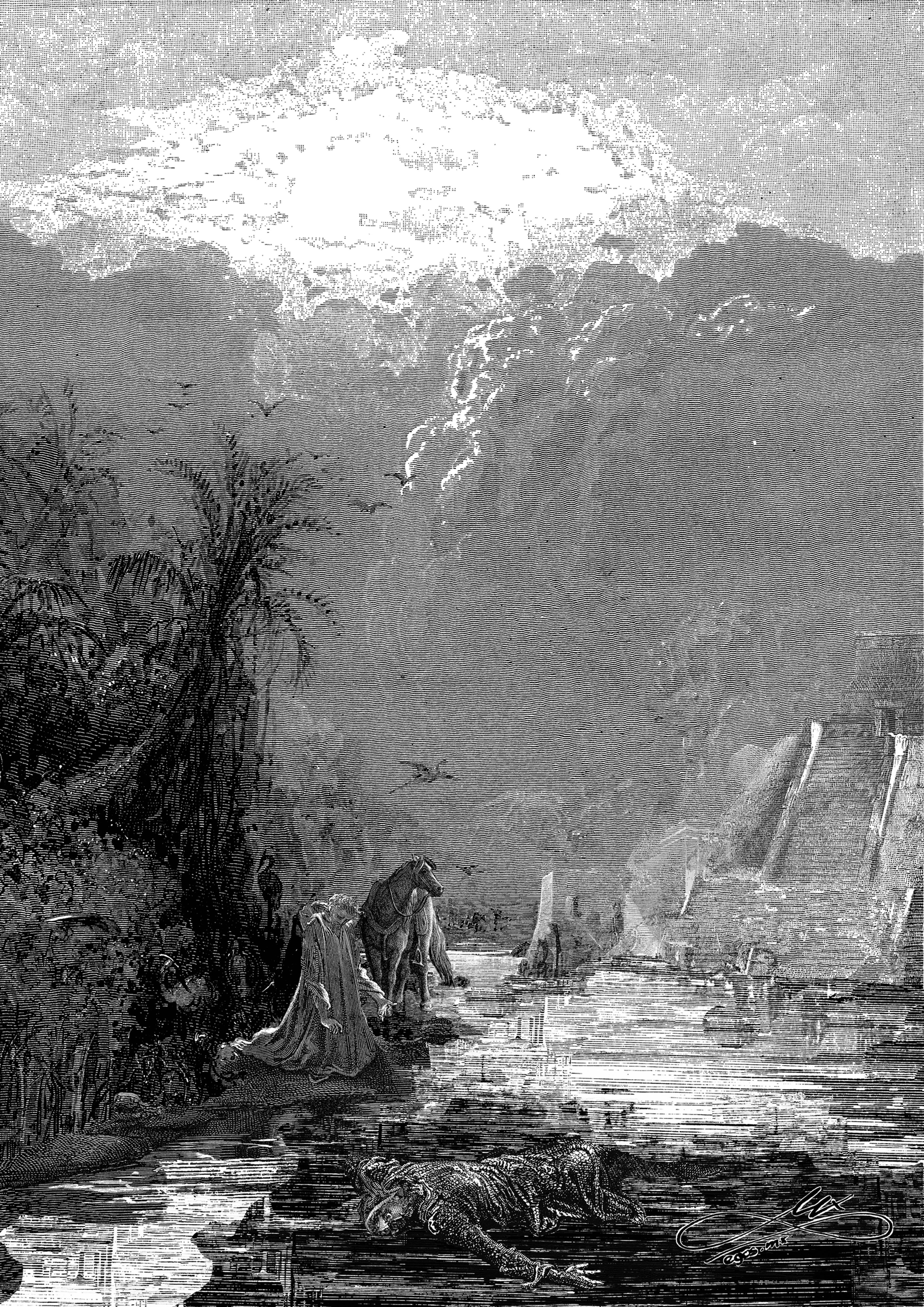
Verse 36 - The founding of Irulyar
After their city was destroyed, the citizens of Angiyona left their city behind and wandered the eastern coast for many years, sustaining themselves through fishing in the ocean and hunting the coastal plains. However, as they moved further south, and followed the river Ralor too far upstream taking them to the foot of the Vayda Mountains, one of the outer mountain guard posts of the city of Kalur spotted them. Not long after, a division of the Kalur military order was deployed to violently attack and chase away the wandering citizens of their rival city of Angiyona. Incapable of defending themselves, they fled back north and eventually settled at the point where the river Litor flowed into the ocean. There, anno 3719, they founded Irulyar, a large city with an intricate system of canals used to transport goods throughout the city using small canal-faring vessels. Although the city soon flourished, the unprovoked attack of the Kalur military had left a painful scar among its citizens. The first king of Irulyar was crowned, a bitter man named Qela Leyonart. After losing his family to the Kalur military, he was committed to taking his revenge on the city of Kalur and to stealing as much of their riches as he could. In preparation for his misguided war campaign, he took upon himself the task to arm the people of Irulyar and build a large defensive wall around the city. In the end, led by king Leyonart himself, the Irulyar army tried to attack Kalur from the northern side of the Vayda Mountains, moving in on the city surreptitiously through various mountain passes. However, under the command of Captain Hadar Gerardus, the Kalur infantry managed to stop the Irulyar army long before they crossed the mountain range. In the end, both sides suffered immense casualties, but the battle remained undecided. Eventually, after many weeks of fighting, the Irulyar army retreated. They simply could not match Kalur's fanaticism for battle induced by their desire to retain ownership of their precious crystals.
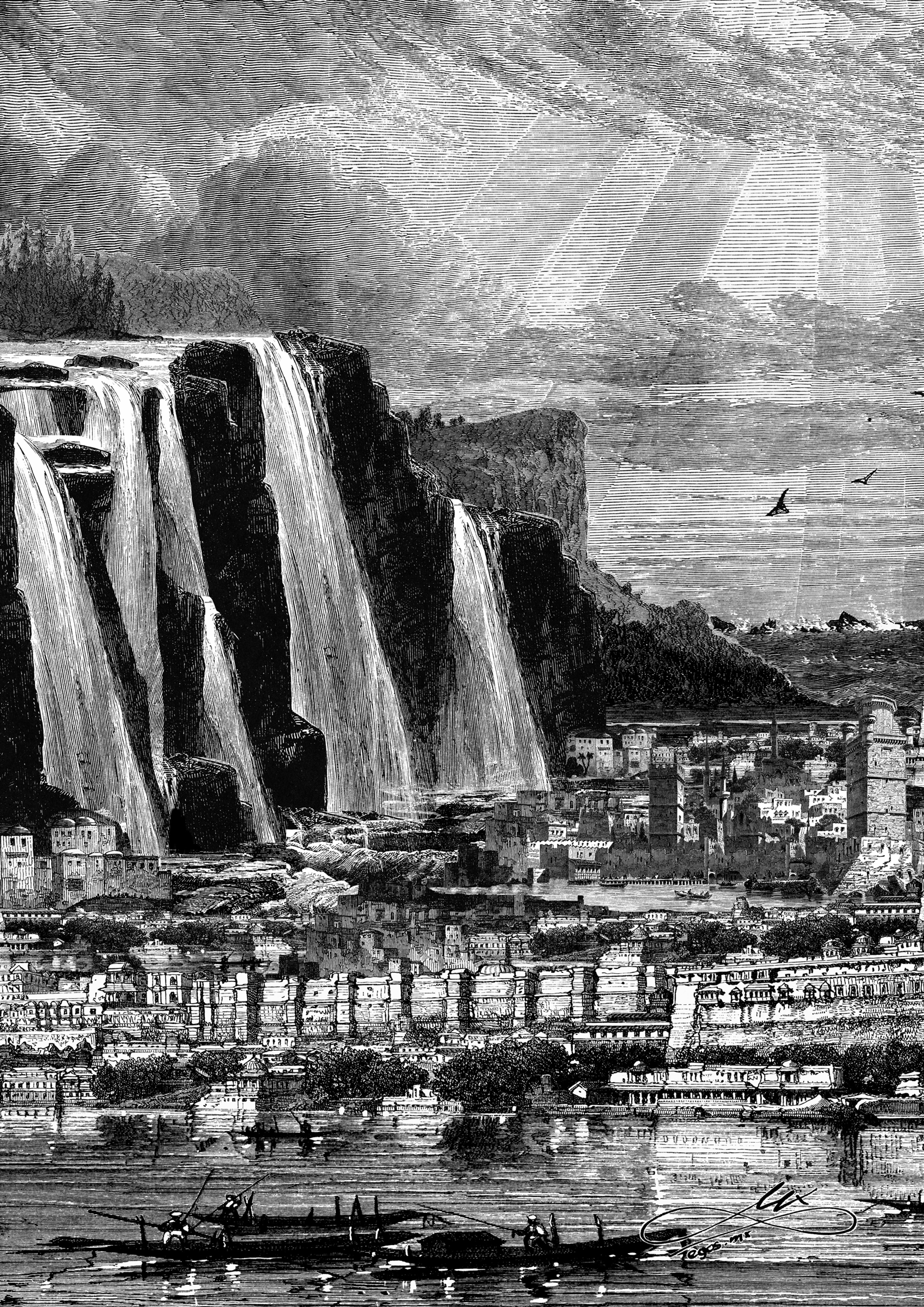
Verse 37 - The Southern Exiles
After successfully defending Kalur against the attack of the Irulyar army, Captain Hadar Gerardus was welcomed back into the city, but not with the honor and respect he had hoped. When Arvenus had fled Kalur, the military had taken over the reign of the city. However, without the leadership and shielding powers of the Watcher, the inhabitants of the city had not been able to withstand the dark power of the Ether crystals. Kalur had quickly become a city of violence and corruption. In an attempt to restore order, Hadar Gerardus seized power over the military and appointed himself high commander. As soon as he had fully secured his position, he went one step further. On account of the reality that the military hierarchy in the city would prevent his children from inheriting his wealth and position of power, anno 3736, Hadar Gerardus declared Kalur a city state with himself at the helm. In his old age, he fathered two sons, twins with such a striking resemblance that even their own mother couldn’t tell them apart. Subsequently after their birth, Anamar, the firstborn son, was branded with a mark so his parents would know which of their sons was the successor to the reins of power. However, during the night, one of Hadar Gerardus’ old political rivals secretly branded Erunir, the second born son, with the same mark. As the twin brothers grew older, both found a following among the Kalur military. In the end, they both openly claimed to be Anamar, successor to Hadar Gerardus’ rule, and when Hadar Gerardus died, anno 3762, the strife between the twin brothers resulted in a short lasting but brutal civil war. One of the twins was driven out of the city together with his followers. The exiled peoples traveled to the far south, where they settled along the coast, below the Geron Forest to the east of the Nirala Mountains. They would come to be known as the Southern Exiles.
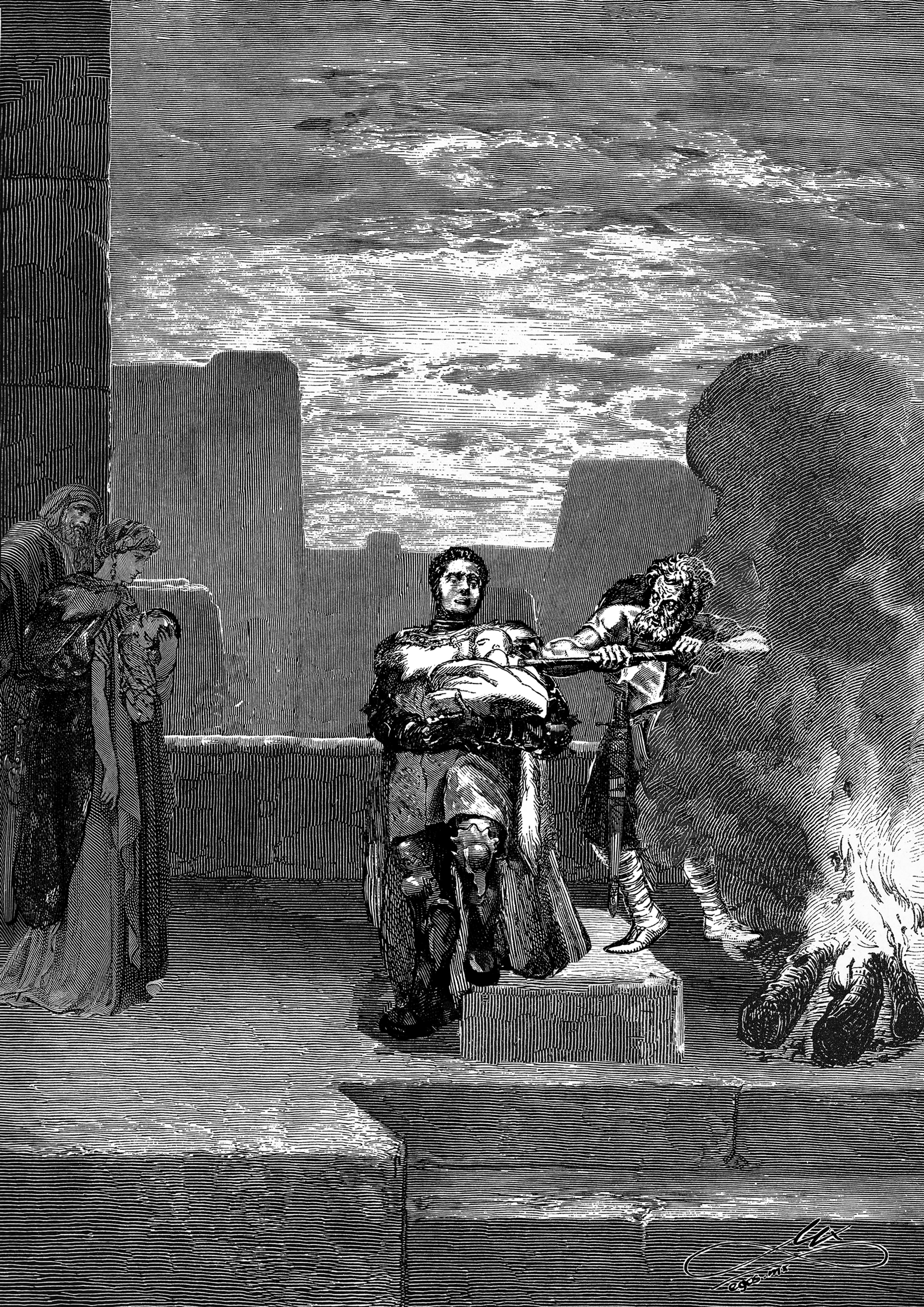
Verse 38 - The Abjuration
After king Qela Leyonart and the Irulyar army returned from the Vayda Mountains, seriously diminished and without victory, he was soon deposed. A new king was crowned, named Alon Diyanur, who was a distant descendant of both Psikar, God of the Spirit, and Gidiyon, God of the Heavens. Under his reign, Irulyar grew into a great city with a deep-rooted religious tradition. They worshiped all seven Gods equally, and founded the guild of shamans, which consisted of descendants of the Gods that were able to wield their powers to benefit the city and its citizens. After king Diyanur made a peace offering to Kalur and established a trade treaty with their former rival city, several centuries went by and Irulyar flourished. But then everything changed. Anno 4533, Teriyas, God of Creation, proclaimed himself Supreme God, and forbade the citizens in Irulyar and all other Mano people across his entire realm to worship any other God apart from him. With Gidiyon as his right hand, Teriyas made Psikar, Anata and Eviyra his servants, and kept them confined between the walls of the vault in the Nirta mountains. He made Eviyra his slavewife and violated her in front of the other deities in order to assert his dominance. The city of Irulyar descended into chaos when the city's king and high priest announced the abjuration of the religion of the seven Gods, all to please Teriyas, God of Creation, and proclaimed that he must be worshiped as the One God, ruler of all. The king organized a purge to capture and get rid of all shamans and opponents of the abjuration. Many citizens died that day, but a large group of them managed to flee the city. As they continued to be hunted by the Irulyar army, these repudiated peoples divided into three nomadic war tribes, named the Deer Tribe, the Wolf Tribe and the Bear Tribe by virtue of their battle attire. These tribes then proceeded to settle inland around the Eranor Lake and Truyin Forest. Over the years, the war tribes eluded the Irulyar army and managed to survive the cold winters by raiding the merchant parties that traveled between the city of Irulyar and the city of Kalur.
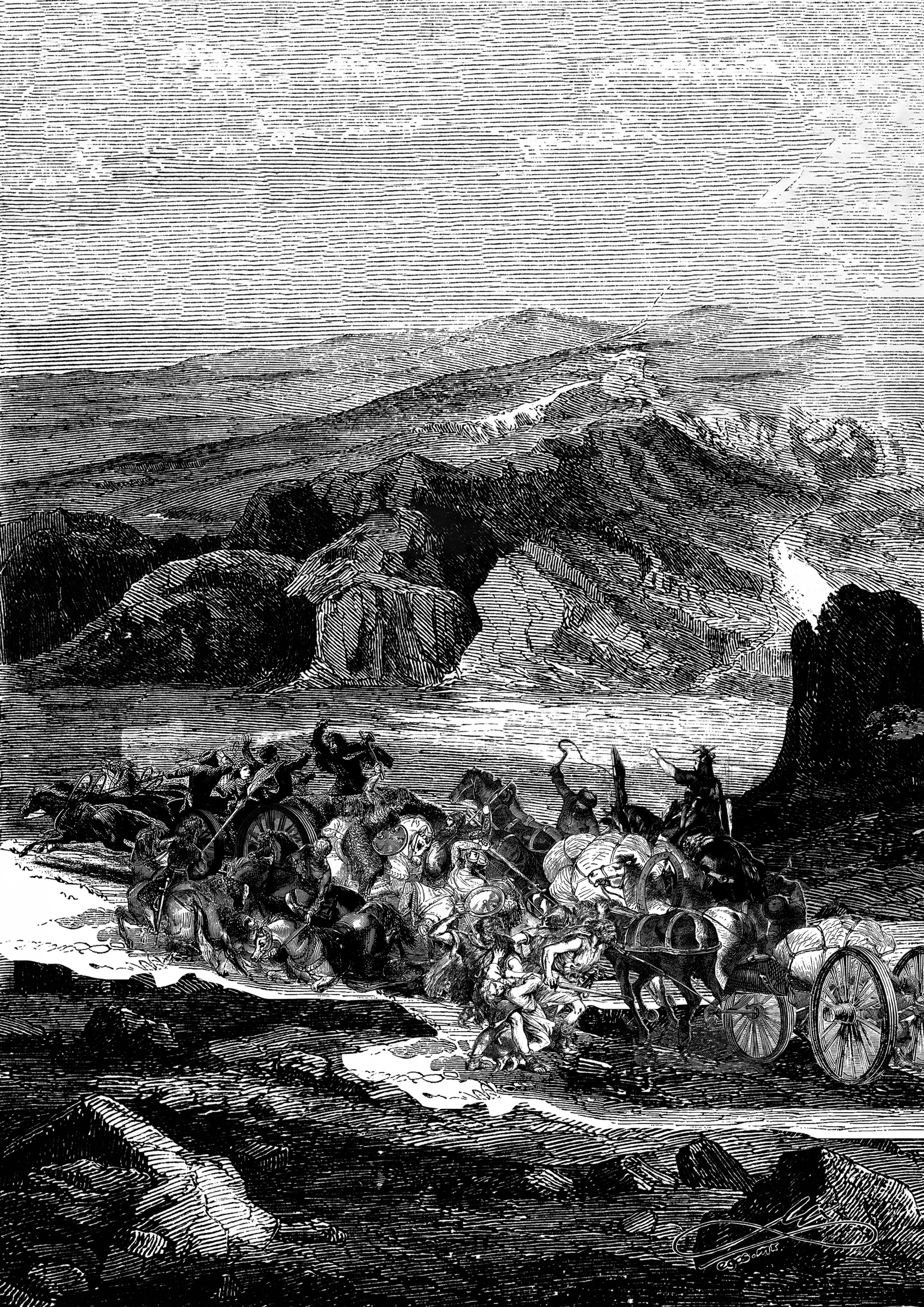
Verse 39 - The Nayil foundling
Anno 4534, Eviyra gave birth to a Nayil child fathered by Teriyas. A girl. Teriyas ordered Gidiyon to take the child from Eviyra and dispose of her. However, Gidiyon couldn’t bring himself to kill her. To make sure Teriyas would not know that he had disobeyed his orders, Gidiyon abandoned the child in the vast cavern system beneath the waters of the Lake of Anadan where the Guyins had been imprisoned many centuries before, and where they had survived the ages as a society. There, the child was found by a group of Guyin hunters. Given that they recognised the child to be Nayil - after all, it had been the Nayil army that had imprisoned the Guyins - she almost fell prey to the wrath of the Guyins. However, one of the hunters stopped them, and reminded them that the child was a direct descendant of the Gods and would have inherited some of their ability to harness the power of the Ether. They brought the child to their chief, who decided to keep her alive and raise her in captivity, so that they might find out whether her powers could be used to help the Guyins escape the cavern system. The Guyins called the child Grimyilde, and kept her in a cage outside the village of their chief, carefully observing her over the years, until her powers emerged. However, over time Grimyilde managed to win the trust and respect of the Guyin chief and his family and was granted permission to live among them. Together they began to experiment with Grimyilde’s powers, hoping to eventually escape their underground prison.
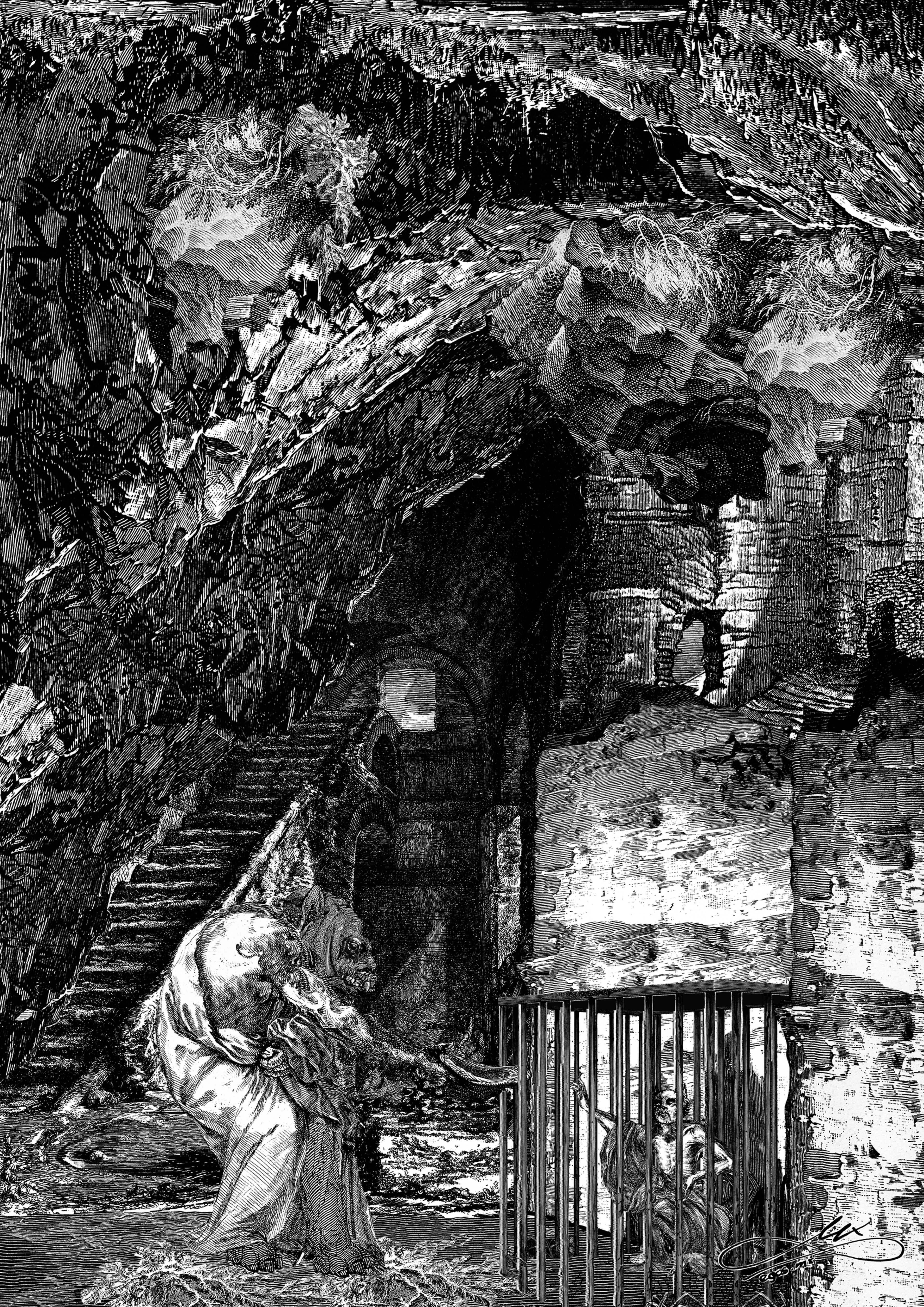
Verse 40 - The reclamation of Irulyar
After centuries of roaming the Land of Spirits in search of his beloved Nadale, the Ether finally showed Merg, God of War, a glimpse of what was to come. He would father a son that would set in motion a series of events resulting in Merg seeing his beloved Nadale again. Without revealing his true identity, Merg asked for refuge from the war tribes of the repudiated. He lived among the tribes as a healer for a time, until, among the members of the Deer Tribe, he found the woman from his vision that was supposed to carry his son. Deep in the night, Merg killed the woman's husband and conceived a child with her. He then revealed his identity to the women and forced her to keep the events that had occurred that night a secret, compelling her to raise the boy to adulthood, until a time that he would return for him. That night, Merg left the Deer Tribe, but he continued to watch over his son, who was named Yorg, from a distance as he grew up. When Yorg reached adulthood, he became the commander of the Deer Tribe warriors, and later, upon being recognised as the halfgod he was, he was named the commander of all three war tribes. Anno 4572, King Arvin Verseyus of Irulyar, bolstered the Irulyar army with mercenaries from Kalur, and set a plan in motion to get rid of the Deer Tribe, Wolf Tribe and Bear Tribe for good. While the war tribes feared for their existence, Merg told Yorg to travel to Inya to plead the Inya warriors for aid in his battle against Teriyas and the armies of Irulyar. Yorg’s mission was a success, and subsequently a great battle took place. In the end, the war tribes and Inya warrior guild prevailed and took back the city of Irulyar.
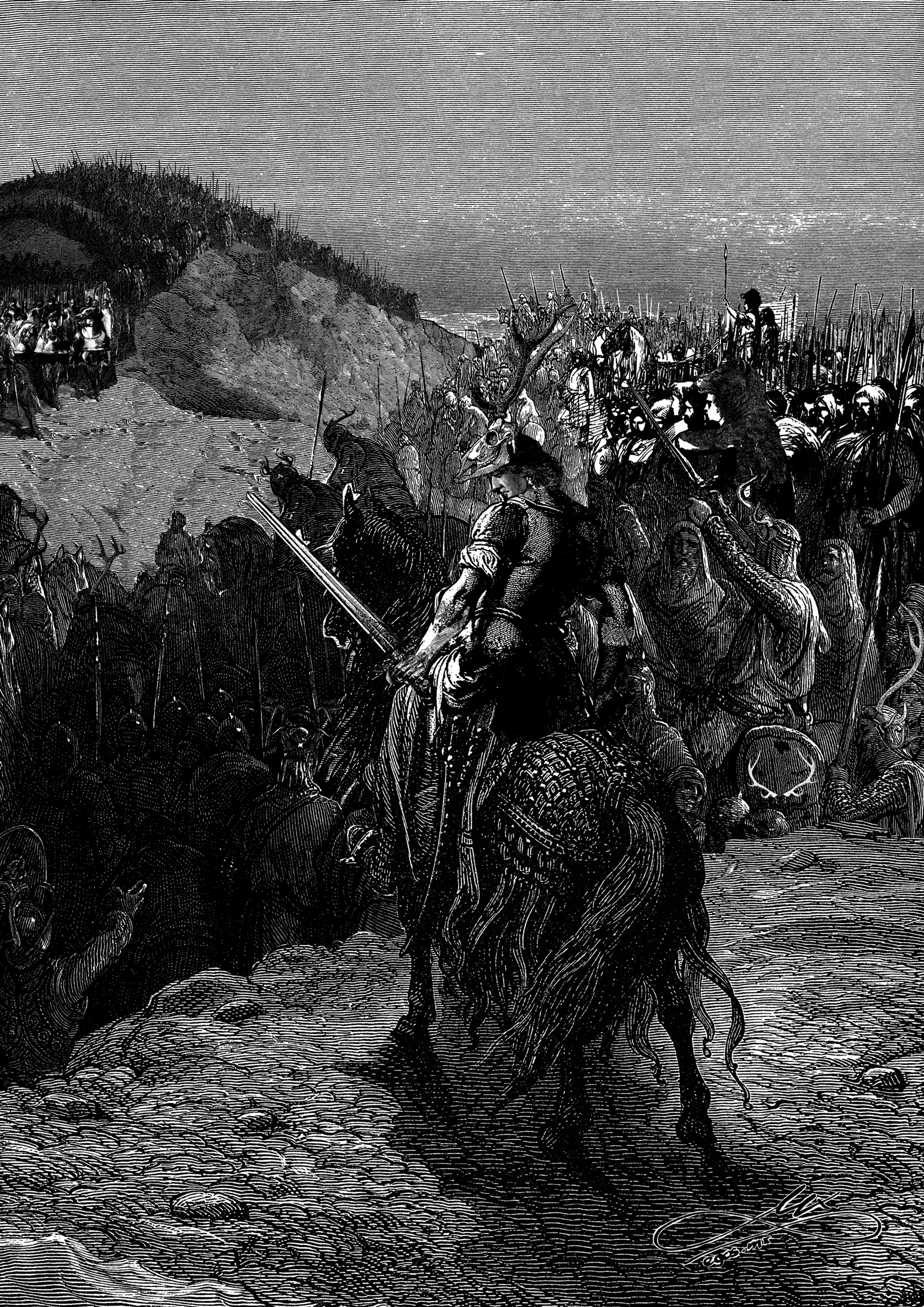
Verse 41 - The return of the Watchers
Although the war tribes of the repudiated had managed to take back the city of Irulyar, they could not prevent Arvin Verseyus from escaping with a small division of soldiers. Yorg and his warriors tried to track him down and followed his trail through the Vuyon swamp where they encountered the Watcher Arvenus. As they shared a common enemy, Yorg tried to convince Arvenus to reunite the Watchers to fight Teriyas’ reign with him. In the end, Arvenus agreed and left the Vuyon swamp to bring back the Grey Order. Upon reaching the furthest end of the swamp, Yorg and his warriors were attacked by King Arvin Verseyus and his soldiers, but they managed to defeat them. Teriyas, God of Creation, was furious that one of his own Mano has turned against him, and sent the savage army of the Nayil to destroy the war tribes. So that he might prepare Yorg for the imminent danger as best he could, Merg gave Yorg his bespirited sword. Yorg could sense the centuries-old spirit of Ervingale Danu trapped within the sword, as well as feeling Ervingale’s hate towards his creator Merg, God of War, who had deceived him. Despite Yorg wielding the mighty weapon, in the end, the war tribes and Inya warriors were no match for the Nayil army. However, just as they found themselves at the jaws of defeat, Arvenus appeared, leading the remaining Watchers of the Grey Order into battle. With the help of the Watchers, the Nayil were defeated. Upon feeding on the immortal Nayil’s spirit energy, the Watchers were finally able to satisfy their maddening hunger and return to who they once were. After the battle, most Watchers returned to live a peaceful life amongst the Mano.
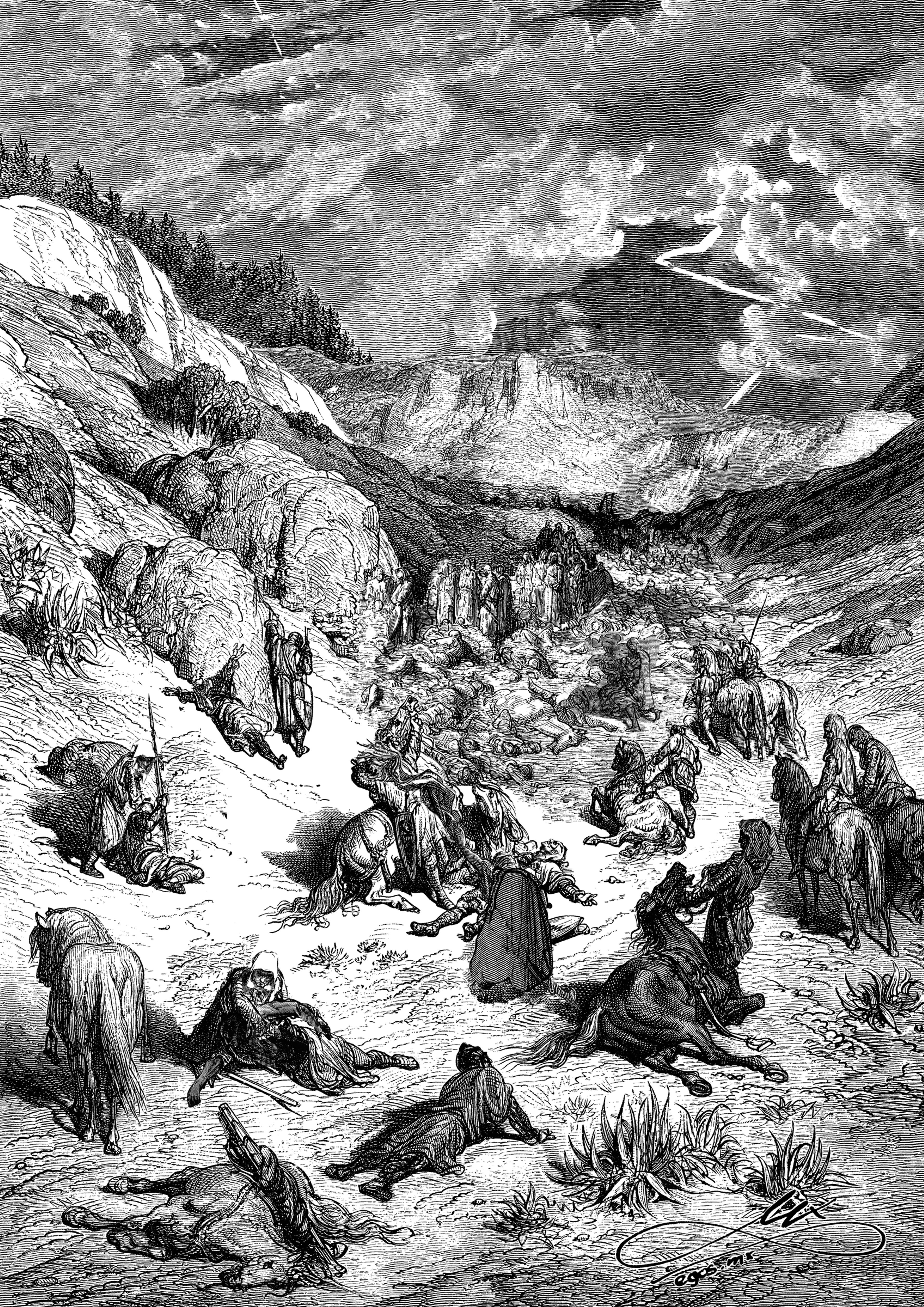
Verse 42 - The fate of the seven deities
Drunk on the evening of their victory over the Nayil and looking for redemption, the Watcher Arvenus shared with Yorg his knowledge of the location where Nadale, Goddess of Fire, had been imprisoned. Yet, he did not share the fact that he had been the one to abandon her to her fate centuries ago, all for his own gain. After Yorg brought the news to his father, Merg asked for Yorg’s and Arvenus’ help to lead him to his beloved Nadale and set her free. The three of them traveled to the northernmost reaches of the Vayda Mountains, where Arvenus led them through the mountain passes, cleverly evading the Kalur army posts and killing any soldiers that stood in their way. They managed to reach the Kalur mines where Arvenus led them deep into the mountains, through hidden caverns and underground lakes, until they reached the deep chasm where Arvenus had found the large pocket of Ether crystals together with the orphan girl from the forest village of Grindur. Merg, even in his weakened state, could sense that the goddess Nadale was near, and managed to locate her. Yet, he was not powerful enough to break the incantation that bound her to her mountain prison. Merg almost died trying and collapsed in Yorg’s arms. At that moment, Arvenus confessed that he once had the chance to free the goddess, and offered to repay his debt. Using all his Watcher powers, replenished by killing many Nayil warriors, Arvenus managed to break the incantation and free Nadale. However, when the goddess finally appeared after her millennia long imprisonment in the molten rock, she looked nothing like her former self. Her ash-covered body was broken and her blackened skin torn to shreds. However, underneath her scorched exterior, she was very much alive, her eyes red from fire, filled with hate. Looking upon Arvenus, she knew immediately who he was. And although Arvenus had fallen to his knees begging for her forgiveness, she didn’t waste a breath before killing him and kneeling down in front of the weakened Merg, who was still laying in Yorg’s arms. Merg uttered only one thing to his beloved Nadale in that moment, and that was the location that Teriyas still called home after many millennia, the vault in the Nirta Mountains, where he resided with his servant Gods. Nadale did not say a single word, but immediately disappeared into the Ether. Merg knew what she was going to do and requested that Yorg carry him up the mountain. There they looked up to the northern sky where an enormous explosion occurred at the very moment that Nadale finished what Merg had once started, and attacked Teriyas with such a force, that the ocean that was the Ether, devoured Teriyas, along with Gidiyon, Psikar, Eviyra, Anata and Nadale herself. Merg could feel his fellow deities die and, with a strange look in his eyes, he looked to the smoke cloud in the sky. He finally had what he had always wanted, he thought: sole undisputed rule over the Land of Spirits. At that point, he asked Yorg to take out his sword and to grant the spirit of Ervingale Danu, who was concealed in the mighty weapon, his vengeance as well. Yorg did what Merg had asked and killed his divine father. No more Gods would roam the Land of Spirits from that day forth.
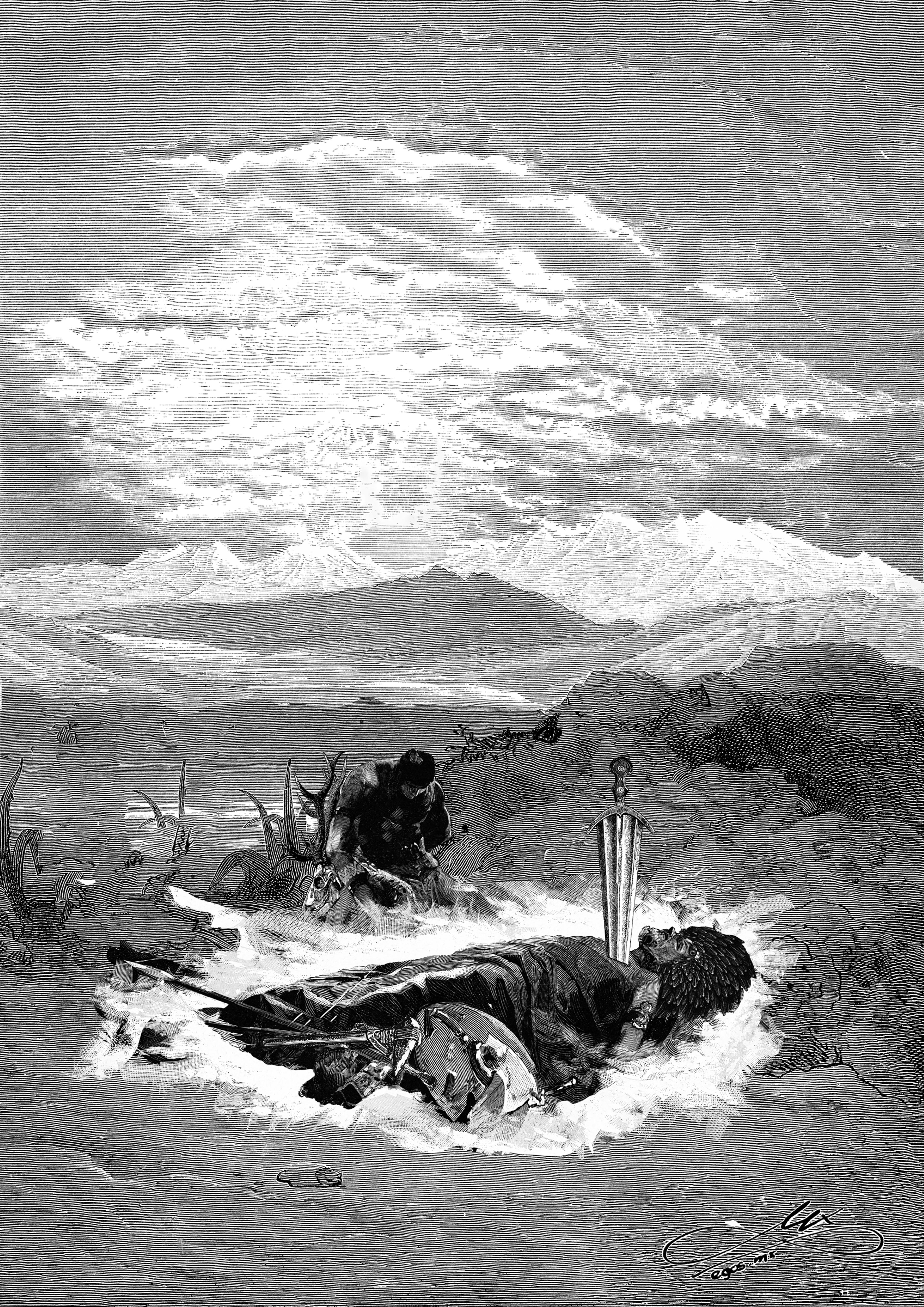
Verse 43 - The last great war
After the seven deities were devoured by the Ether, leaving the Land of Spirits godless, a strange era dawned. As a consequence of the death of the seven deities - their creations inextricably tied to their lifeforce - the Land of Spirits itself was now slowly dying. During the first few years, as the incantations of the deities began to lose their power, the changes were subtle. The once great monuments of nature the deities had created - vast imposing mountain ranges, colossal oceans and lakes, and abundant verdant grasslands and forests - began to crumble and desiccate. And the creatures that dwelled within them, began to grow weak. However, it was about a decade later, when the sky lost its motion and the four seasons began to blend into one, that the circle of life in the Land of Spirits was slowly brought to a halt. Without any Gods to pray to, and no hope, the Mano and Inya societies started to disintegrate. However, even at the end of times, they were not able to meet their end in peace. This was because, anno 4696, almost twenty-five years after the death of the deities, the Nayil foundling Grimyilde managed to break the weakened incantation that had kept the Guyins imprisoned in the vast cavern system below the waters of the Lake of Anadan. As soon as the Guyins found their way to freedom, they armed and organized themselves. Led by the Guyin chief - Grimyilde serving as his right hand - they attacked and destroyed the city of Mano, and didn’t intend to stop there. As news of the war hungry Guyins reached the other human cities, the Mano and Inya societies fell apart completely. The last great war had begun, and would continue generation upon generation, while the Land of Spirits continued to fall into decay. Eventually, a time came when all life in the Land of Spirits had disappeared, and the plains of the earth had become barren again, as they had been when the seven deities had awoken. This was the end of the Land of Spirits.
